Hello and welcome to Work Week, the podcast where we tackle one big question about the rapidly evolving workplace, explore what the research says about the issue, and explain what it all means for you.
I’m Dr. Gabby Burlacu, Senior Manager at The Upwork Research Institute. What you’re hearing is a digital proxy of my voice, created by our team with the help of AI. Today we’re talking about a surprising — and, frankly, encouraging — twist in the future of work.
Today’s big question is: Why is demand for non-technical roles increasing with the increased use of AI?
We’ll tackle this question from two different perspectives: the business leaders doing the hiring and the professionals doing the work.
But first, some background.
OpenAI released ChatGPT in late twenty twenty-two, and within two months it was receiving over a hundred million daily active users. The conversational chatbot was free to use, user-friendly, and useful to people in nearly every industry.
Since ChatGPT’s release, many similar tools have hit the market, each with massive user bases. Microsoft’s Copilot and Google’s Gemini see tens of millions of users each day. And even smaller platforms like Claude have active user bases in the millions.
Given the widespread use of these tools, and the breadth of their abilities, many assumed that, just as robots replaced many jobs in manual labor in the twentieth century, AI in the twenty-first century would replace many of the jobs done by knowledge workers.
Professionals like project managers, financial advisors, lawyers, and creatives were told to prepare for disruption. The assumption was simple — AI could now write contracts, generate marketing strategies, analyze financial data, and handle project timelines. So what roles were left for the people?
While these fears were legitimate, the data shows that, for many roles, their positions are not only safe, but demand for them has increased.
We recently analyzed Upwork platform data for our report titled AI Trends on the World’s Work Marketplace: How AI Is Reshaping the Way Humans Work. We found that categories that many assumed would be disrupted by AI are seeing over five percent year-over-year growth. These categories include roles like legal consulting, market research, design, project management, and financial planning.
So what’s behind this somewhat unexpected growth?
Trust.
Findings from our research paint a compelling picture about the connection between trust in workers and job growth.
Sixty-six percent of clients express high levels of trust in outputs from workers who use AI tools to enhance their work. However, only twenty-six percent trust outputs delivered by AI alone. In fact, clients place more than double the amount of trust in a blend of AI and human collaboration than in AI-only outputs.
Even though AI is increasingly capable, many people — such as your clients, your customers, your stakeholders, your users — don’t fully trust it on its own.
What do they trust? Human experts who know how to integrate AI into their workflows. Experts who can interpret, validate, and elevate what AI creates.
And this isn’t only about client perception — it’s shaping how work is actually done.
As we highlighted in last week’s episode, across the Upwork platform, freelancers are using AI to augment their work seventy-one percent of the time, while only relying on it for automation in twenty-nine percent of cases.
This means freelancers — and knowledge workers more broadly — aren’t being replaced by AI. Rather, they are using AI to accelerate, sharpen, and scale their human skills.
And business leaders are taking note.
A global KPMG study featuring insights from nearly fifty thousand respondents reinforces what we’re seeing on Upwork. Fifty-four percent of respondents do not trust AI systems today.
And that’s completely understandable. Today’s top-tier large language models continue to show some error rates even on fairly routine tasks. That may be acceptable for some use cases — but not for business-critical decisions or customer-facing products.
This is why we’re seeing companies move toward human-in-the-loop systems — where AI handles the initial pass, but a trusted expert provides the review, refinement, and interpretation.
In this model, trust becomes the value driver.
And it’s not just about catching mistakes. Humans bring what AI can’t, including contextual judgment, emotional nuance, creative strategy, and ethical discernment.
Let’s look at a few specific non-technical categories on Upwork where we’re seeing notable growth
First is corporate law and legal consulting.
Legal drafting, contract analysis, and policy review are being augmented — not automated. Freelancers are using AI to speed up document generation but still provide human oversight, interpretation, and risk assessment. AI writes the first draft; the human makes sure it’s right.
Second is financial planning and business strategy
AI can crunch numbers, but investors and clients want judgment. Freelance financial planners are using AI tools for data visualization and forecasting, but the human value lies in building trust with clients, explaining tradeoffs, and tailoring solutions to life goals.
Third is project management and operations.
AI can suggest deadlines and flag bottlenecks. But project managers bring the human touch — motivating teams, resolving conflicts, and adjusting to changing client needs. That emotional agility can’t be coded.
Fourth is design and branding.
AI-generated visuals and layouts are fast and convenient. But brand identity is more than pixels — it’s about emotion, storytelling, and culture. Designers who use AI for ideation, then refine the output with human taste and market insight, are more likely to thrive.
In all of these examples, AI isn’t completing the project — it’s laying the groundwork. But it still takes a skilled worker to bring it to completion.
If you’re leading a team, here’s your takeaway: The smartest hiring you can do today isn’t just for technical talent — it’s for talent that knows how to work with AI. Skilled workers who can also be trusted to take projects across the finish line and drive positive business outcomes.
That means looking for freelancers and employees who are fluent in AI tools and who have judgment, creativity, and communication skills.
Rather than dividing your team into “tech” and “non-tech” talent, ask instead which members of your team know how to combine technology and trust?
This shift also changes how you structure roles. Instead of replacing project managers with a dashboard, give your people AI tools that help them anticipate risk. Instead of automating legal review, give your legal consultants AI support that accelerates their work — while they remain the ultimate decision-makers.
So how can freelancers build on this trend?
The answer isn’t simply to use more AI — the answer is to position yourself as a trustworthy interpreter and executor of AI-augmented work. Let’s break that down across the types of roles we mentioned.
If you’re a legal consultant, highlight how you use AI to draft faster and emphasize your role in fact checking data, interpreting laws, and managing compliance risk.
If you’re a financial strategist, showcase how AI supports your analysis, but make sure clients know your real value lies in understanding their goals and communicating tradeoffs.
If you’re a project manager, lead with your ability to keep human teams engaged, while using AI tools to help prioritize and track tasks.
If you’re a designer or creator, position yourself as a creative guide who uses AI for idea generation, then layers on the cultural insight, brand fluency, and emotional intelligence that create resonant design.
Stan Slavev’s freelancer success story can serve as inspiration. Stan is a video editor and creative director who’s turned adaptability and trust into business superpowers. Stan has always built client relationships on a foundation of trust. He focuses on solving problems and understanding clients’ unique challenges — which enables him to build trust and expand project scope with clients.
Stan shared, “I can put myself in my client’s shoes, as the owner of the company or a manager, and see things from their perspective. Then I get back to my shoes and drive the train to get us there. I can see how to get to the endpoint.”
As part of Stan’s approach to solving client problems, rather than fearing or resisting AI, he’s embraced it. He uses AI tools to scale production for clients, while always leading with strategic thinking and creative insight.
Stan embraces AI to accelerate and scale his work — such as creating more than three hundred videos for a client using AI avatars. He also uses AI to complete tasks that don’t play to his strengths — such as copywriting — rather than relying on AI to replace his role. Stan explained, “AI is a field where curiosity and proactiveness are being rewarded heavily. But few people are pushing one step deeper than just playing around with ChatGPT.”
Ultimately, trust isn’t something clients grant automatically. It’s built through consistency, clarity, and confidence, as Stan has displayed through his long-term relationships with clients. Let AI help with efficiency — but never let it replace your presence.
No matter your role, lead with your ability to combine the best of AI and human expertise. You’re not offering raw AI output — you’re offering trusted outcomes powered by smart tools and strategic thinking.
That’s what clients and business leaders are looking for.
The trust gap in AI isn’t a flaw — it’s a feature. It tells us something profound.
At the end of the day, work is about creating output. But in a world of work in which outputs can be generated in seconds, it becomes increasingly important to see who’s doing the work, how they’re doing it, and whether the outcome can be trusted.
That’s why, amid increasing AI automation and augmentation, the most resilient professionals are both tech-savvy and trustworthy.
And that’s why, even in a world flooded with algorithms, human-centered roles — especially those that embrace AI as a partner — will continue to thrive.
Let’s wrap up this episode as we do every week, with an action item you can implement right away and a reflection question to consider.
Here’s this week’s action item. As a business leader or manager, identify one non-technical role on your team and find a way to elevate it — whether by providing AI tools to accelerate the work or by redefining the role to emphasize trust, judgment, communication, or coordination..
As a freelancer or individual contributor, choose one way this week to highlight your human strengths in your work. This could mean scheduling a call to walk through your thought process, offering an added layer of context in a deliverable, or simply asking more thoughtful questions about client goals.
Now, for this week’s reflection question. Think about your most trusted work relationships — whether with colleagues, direct report, clients, or stakeholders. What built that trust? And how can you reinforce and replicate those behaviors in a workplace where technology is part of every workflow?
That’s a wrap for this week’s episode of Work Week. I’m Gabby Burlacu and if you found this conversation helpful, pass it along to a colleague, leave a review, or just take a moment to reflect on how you build trust in your work. And don’t forget to subscribe for more research-backed insights on the future of work.







.png)
.png)
.png)
.png)
.png)
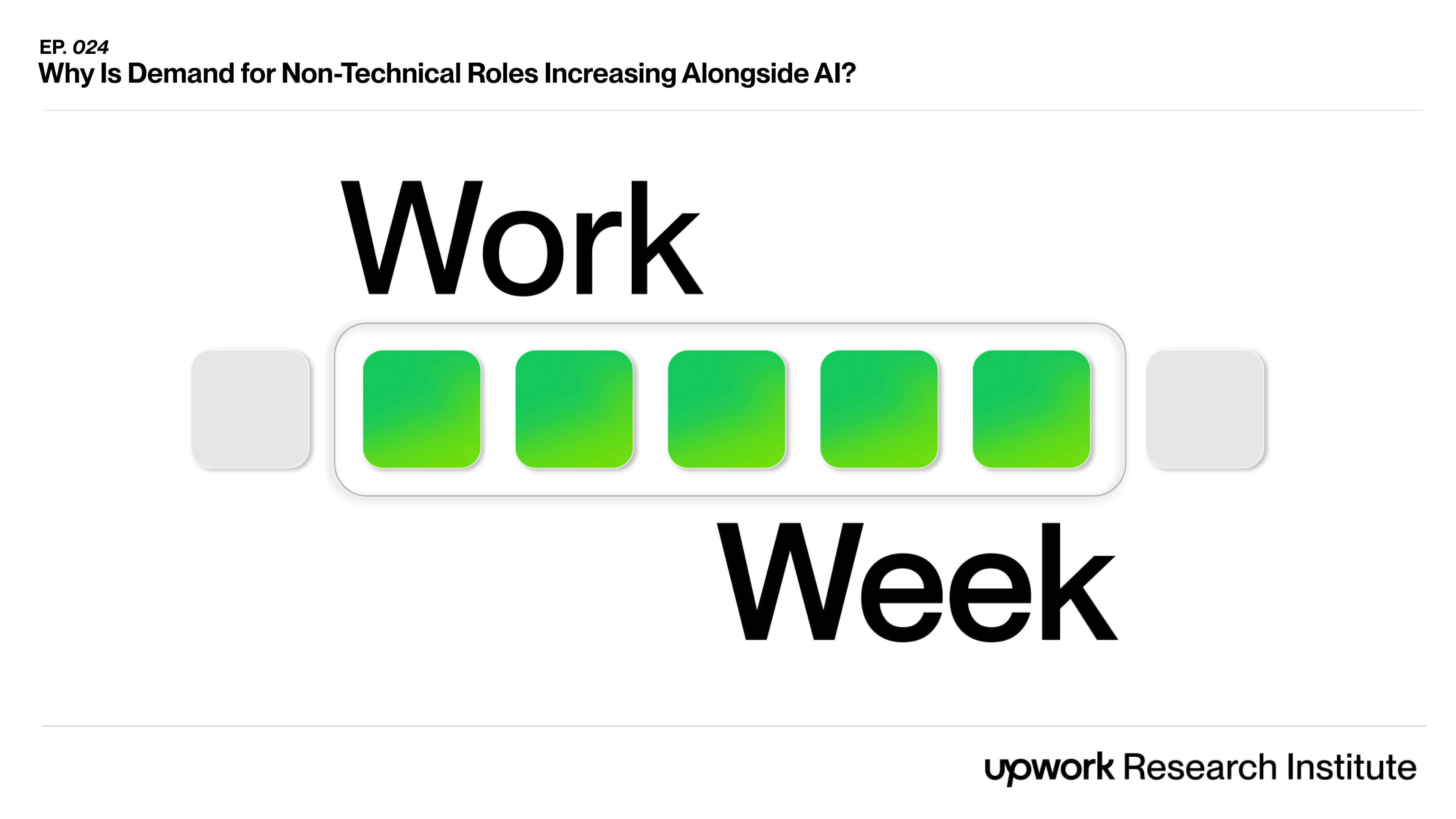


.png)

-p-500.jpg.png)

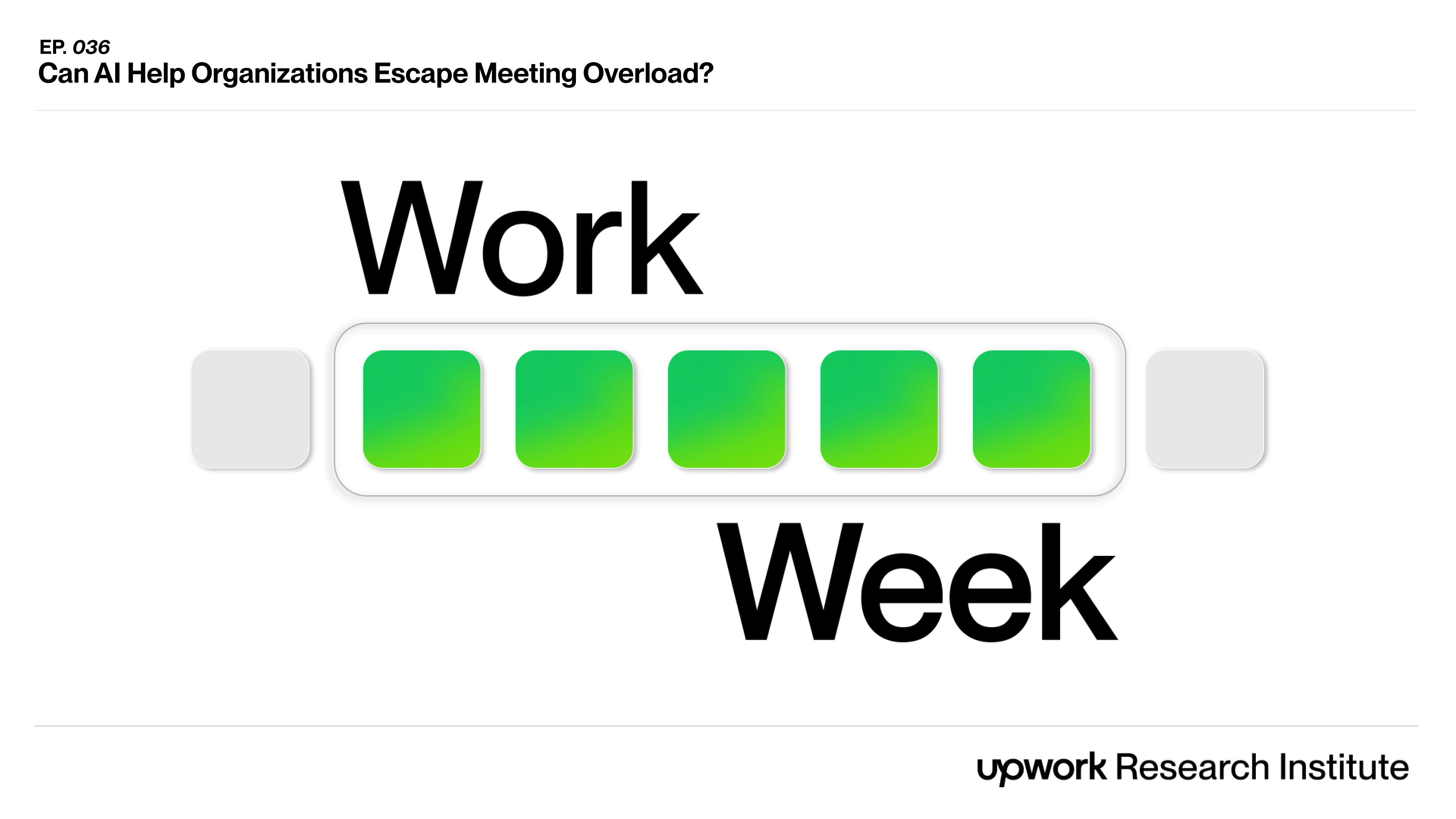

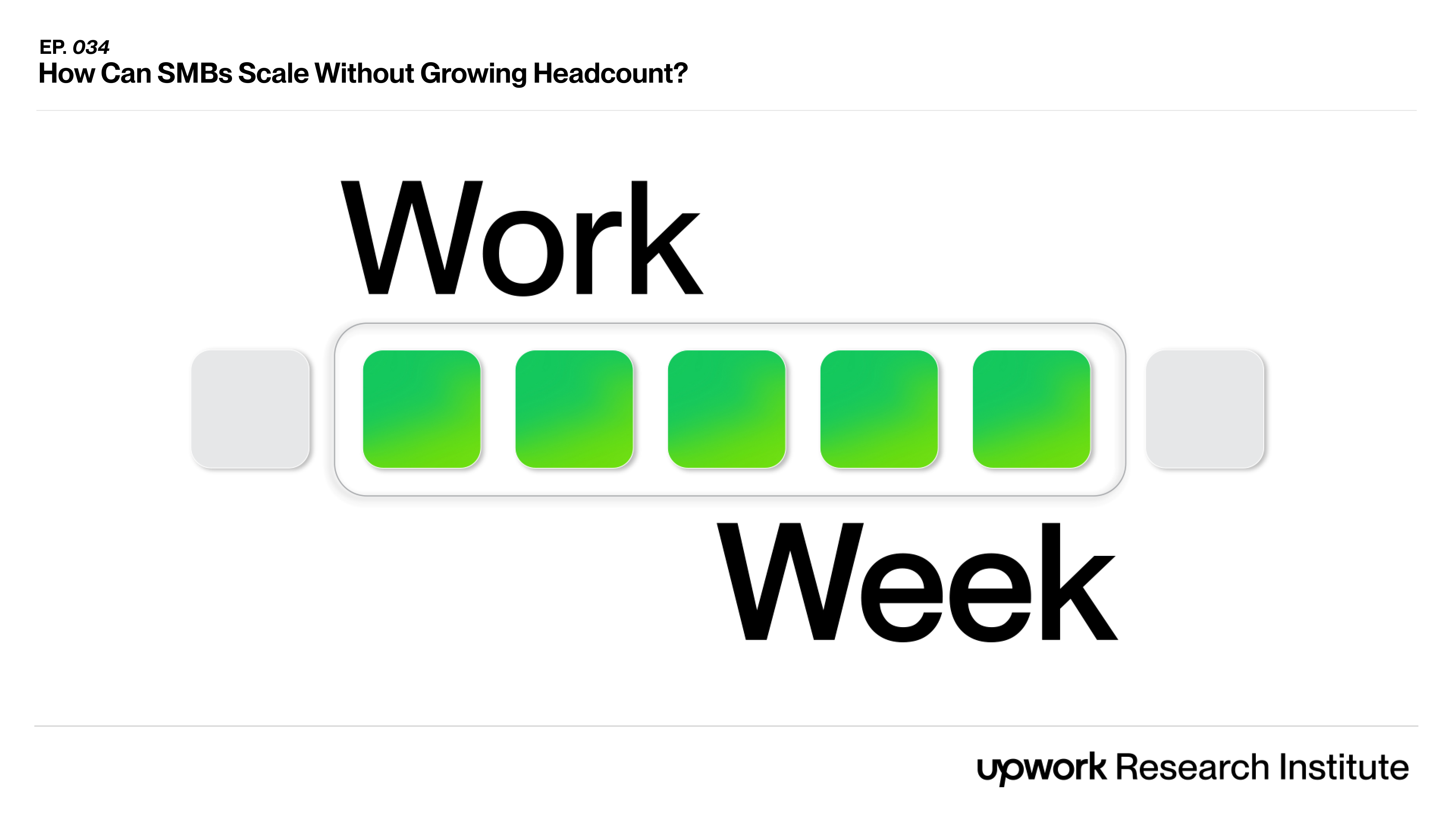
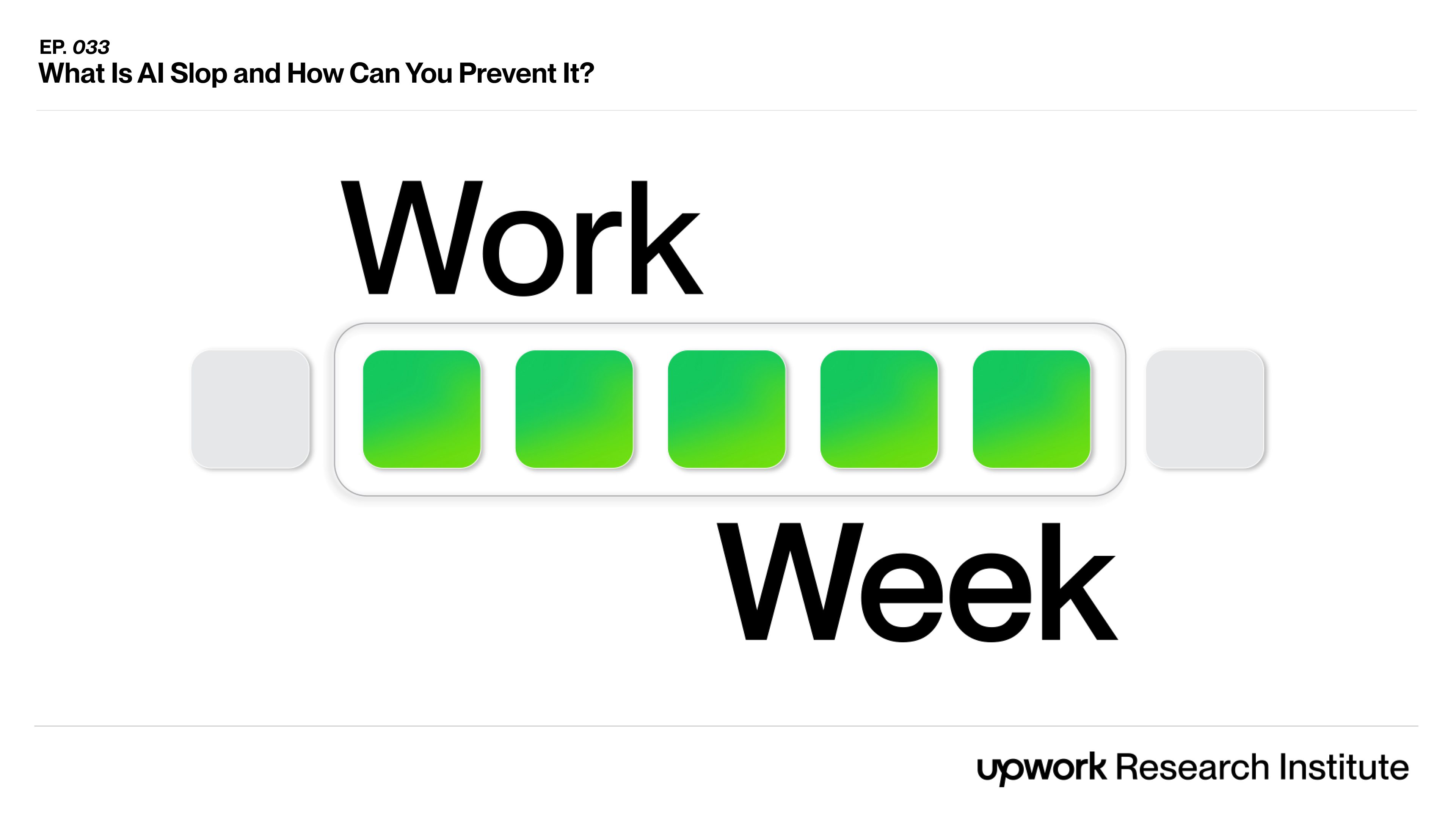
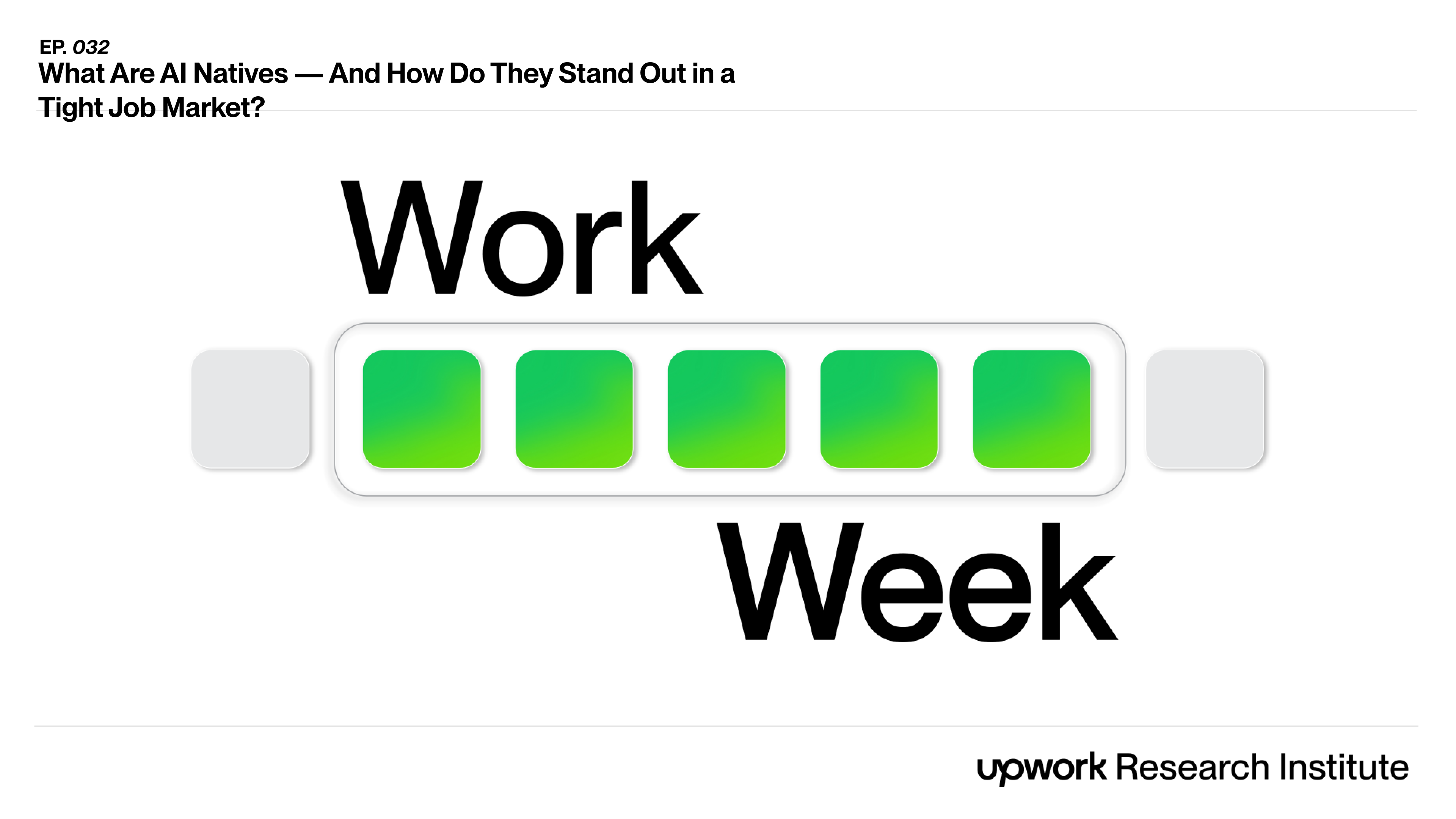
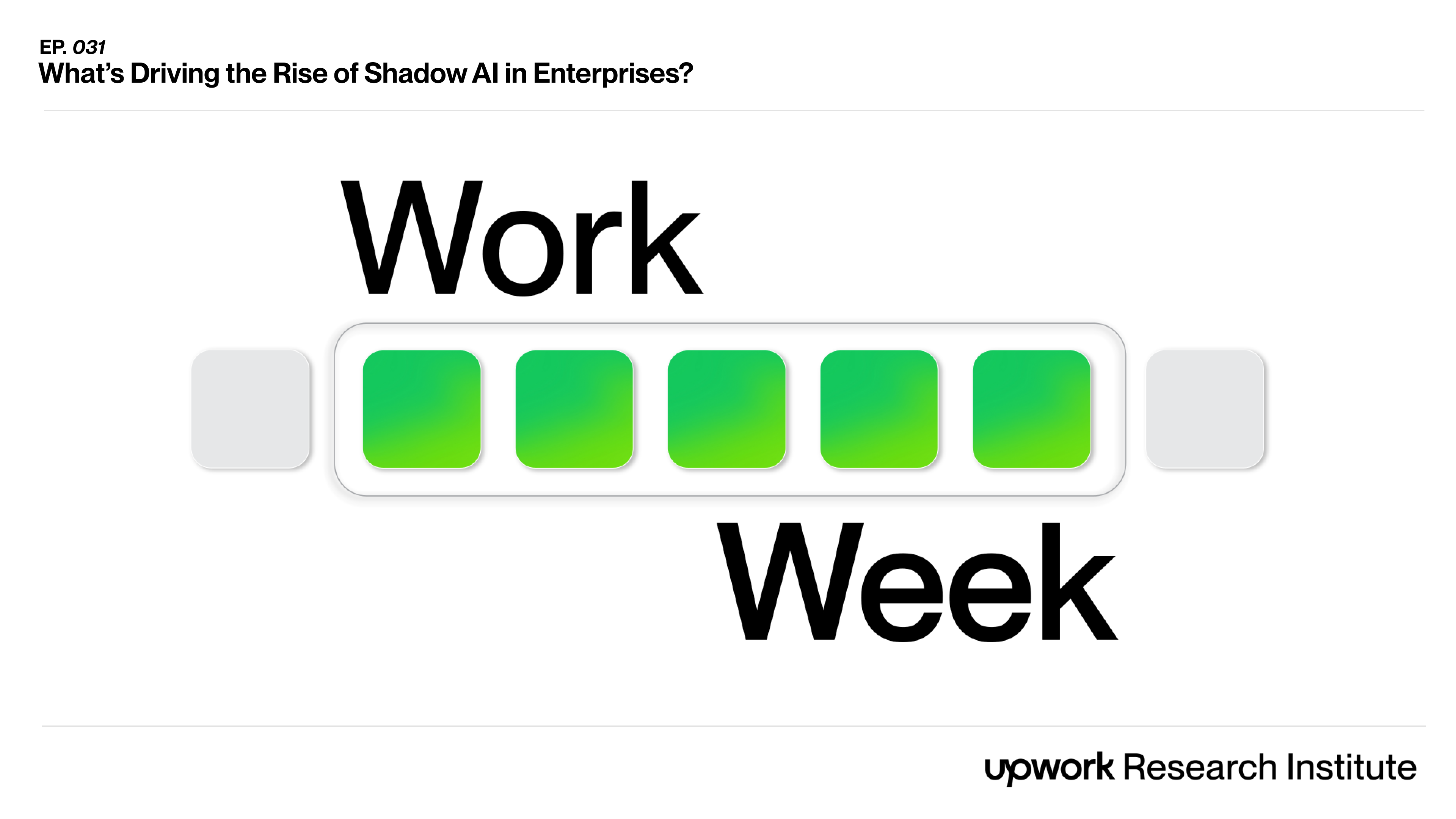
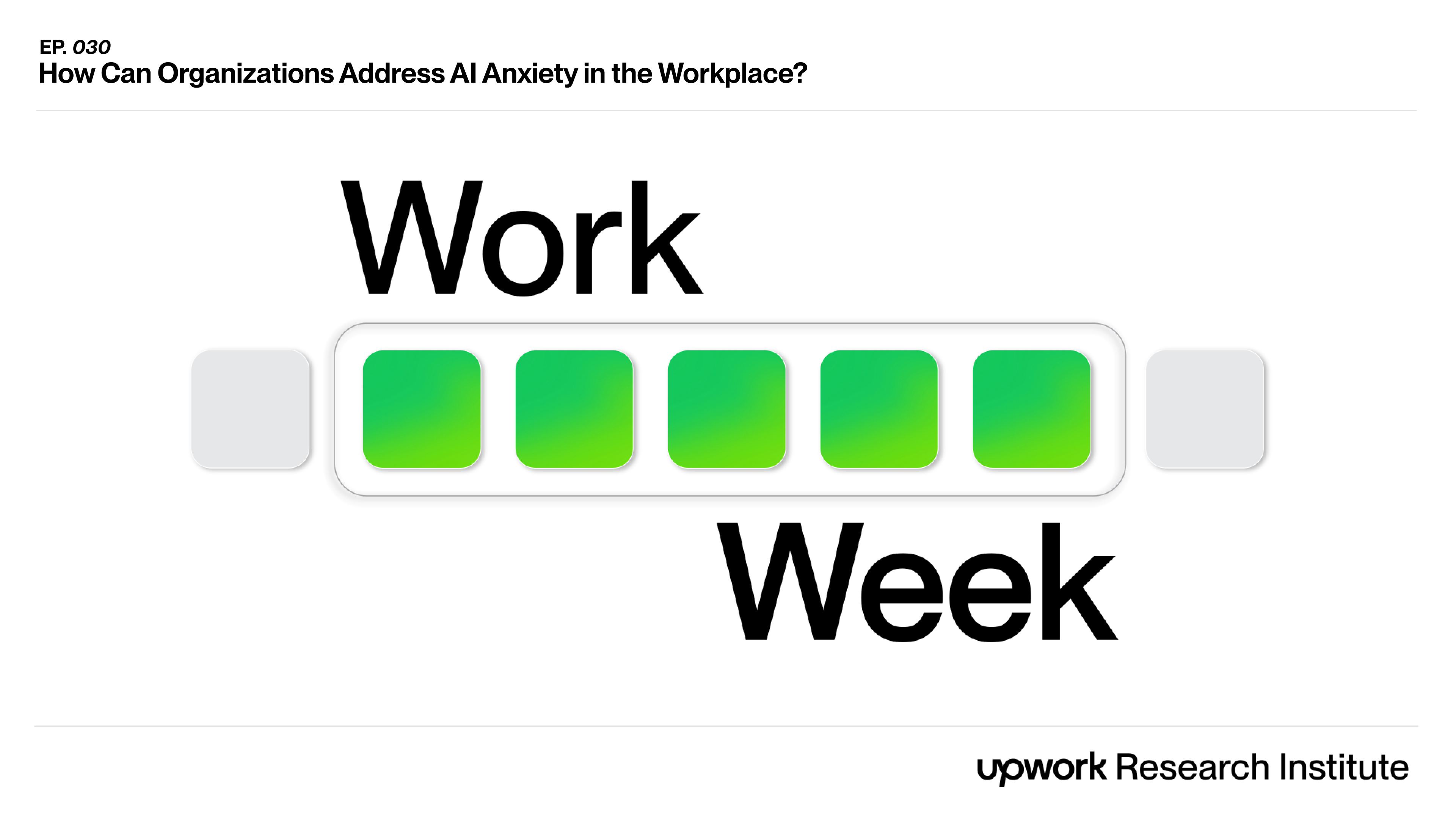
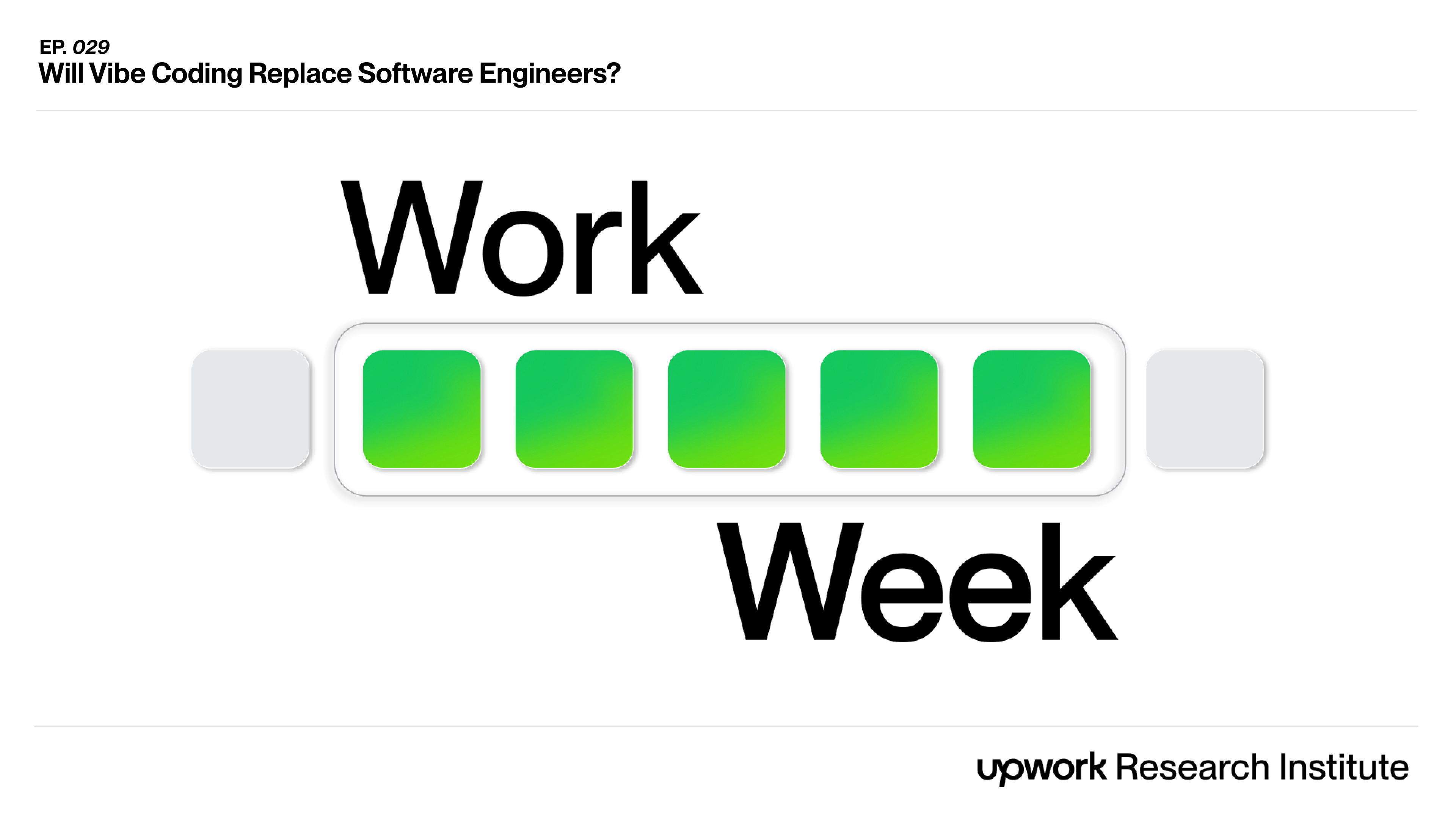
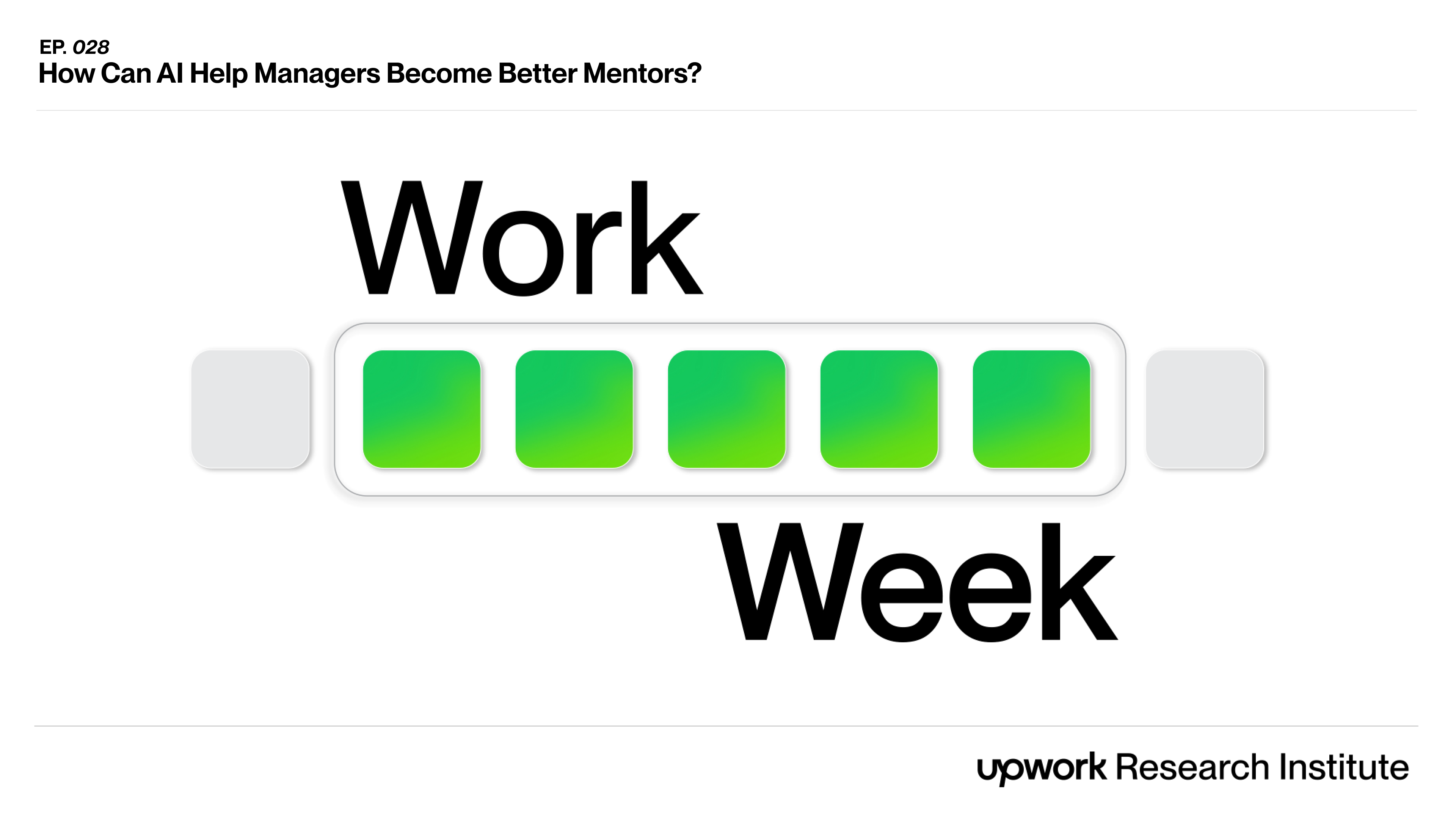

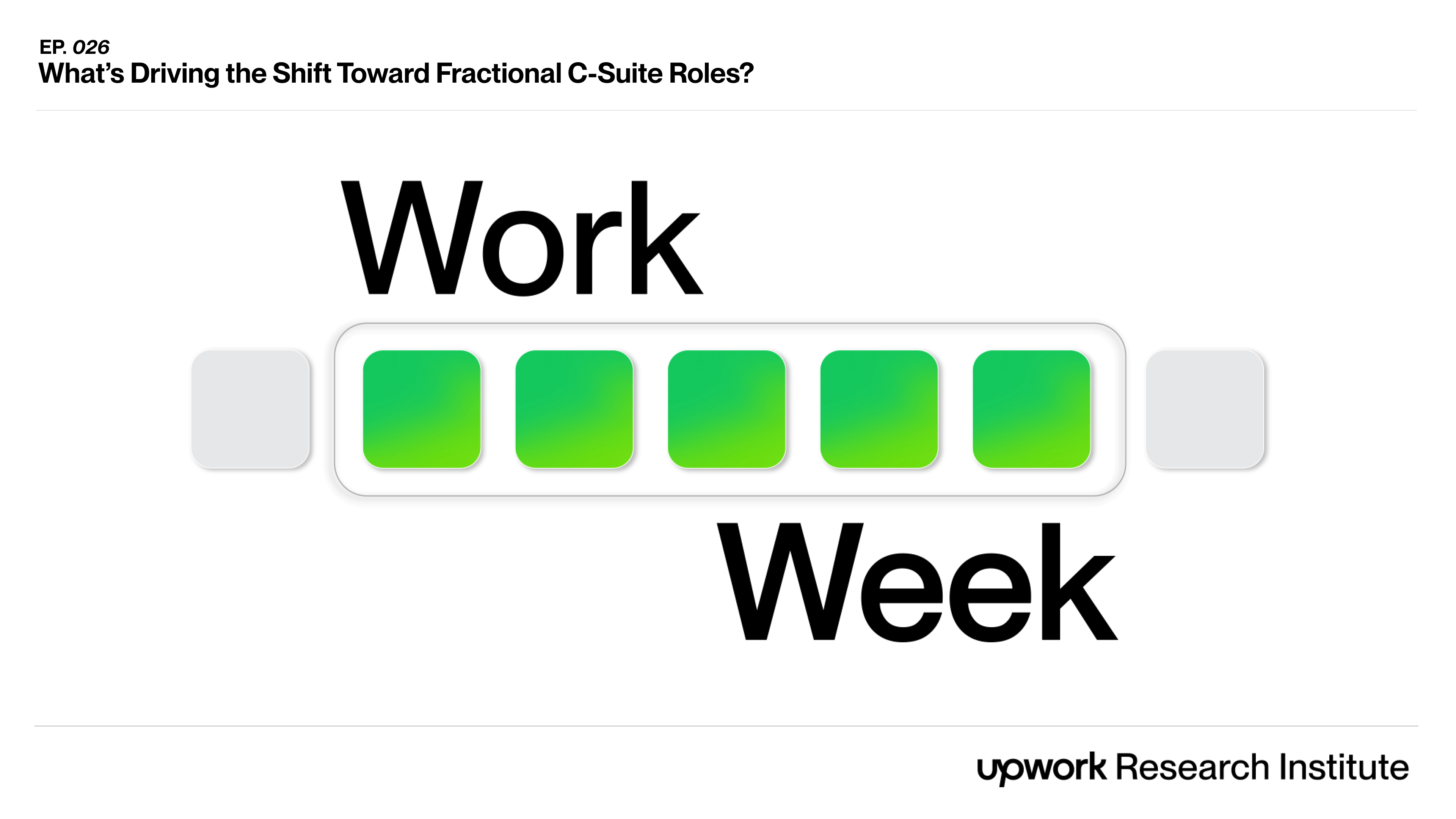
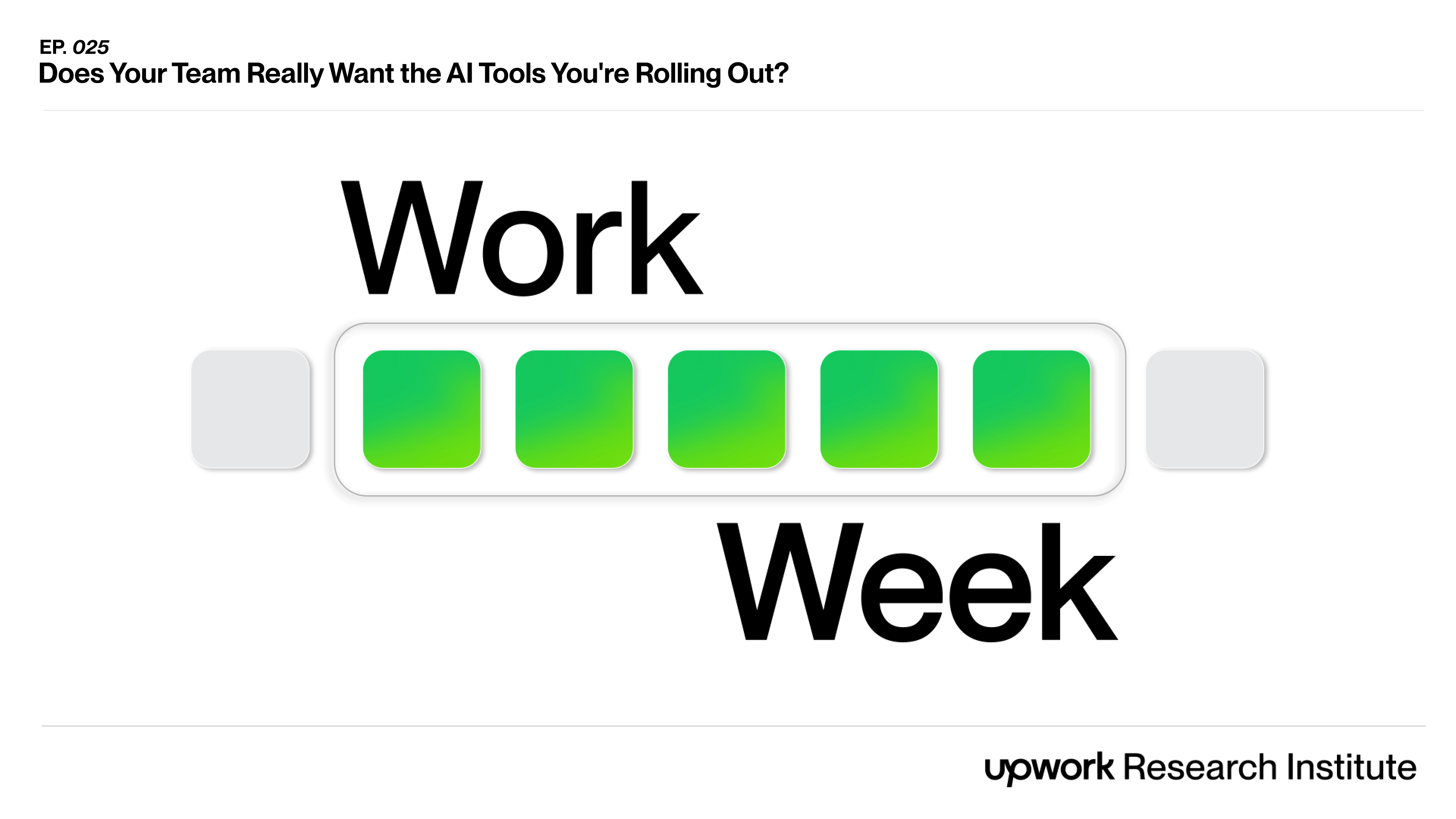
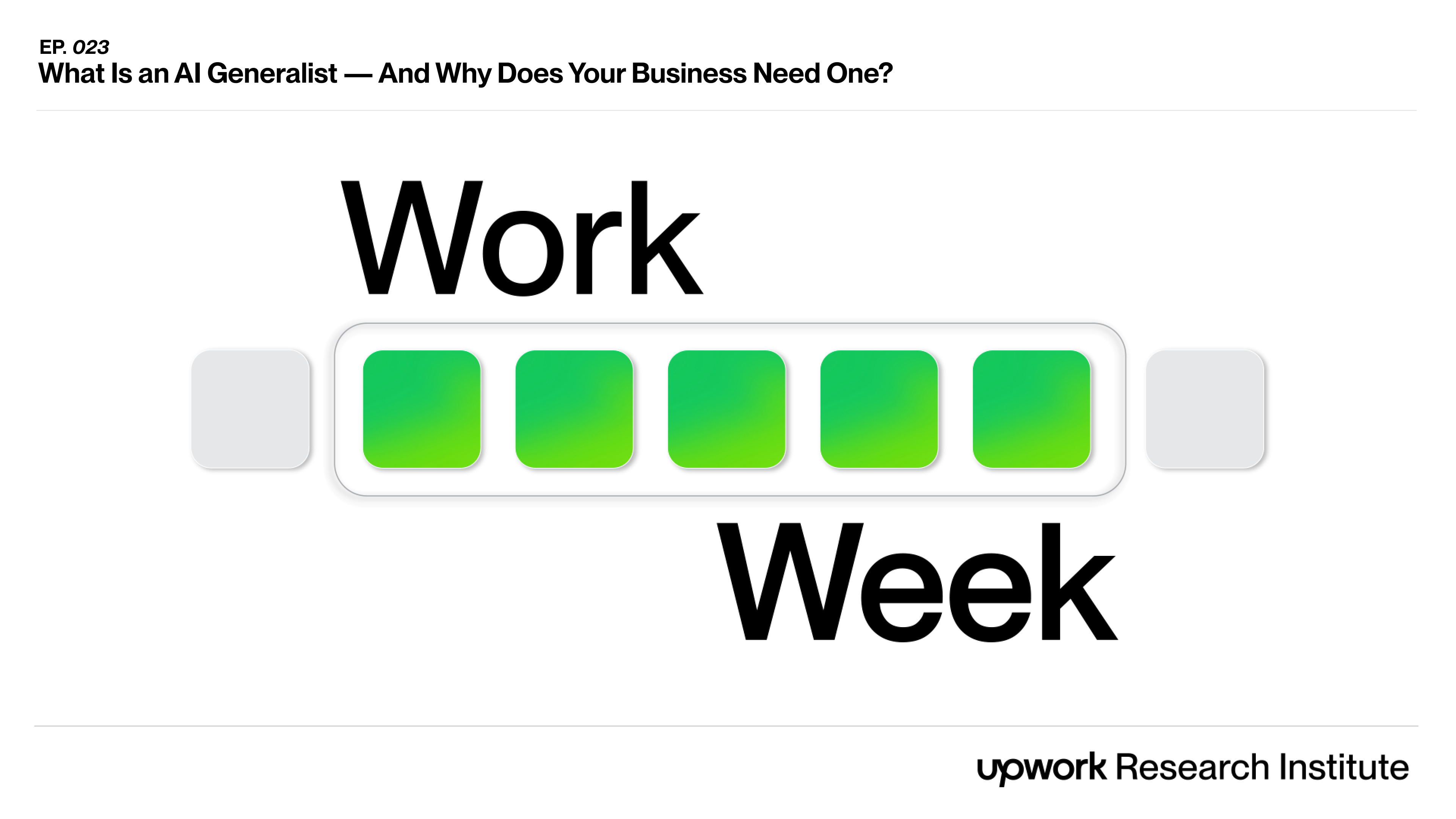
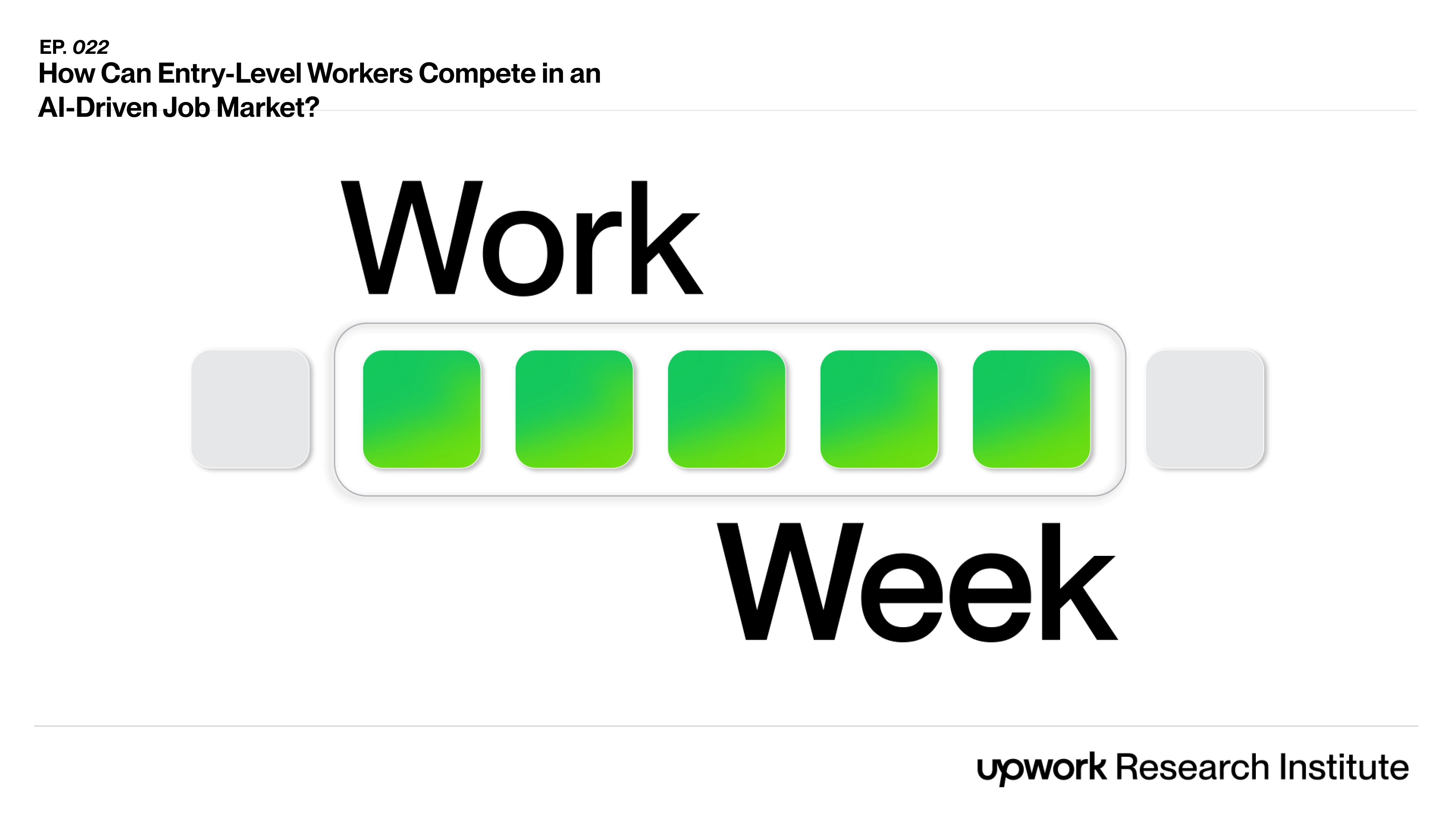

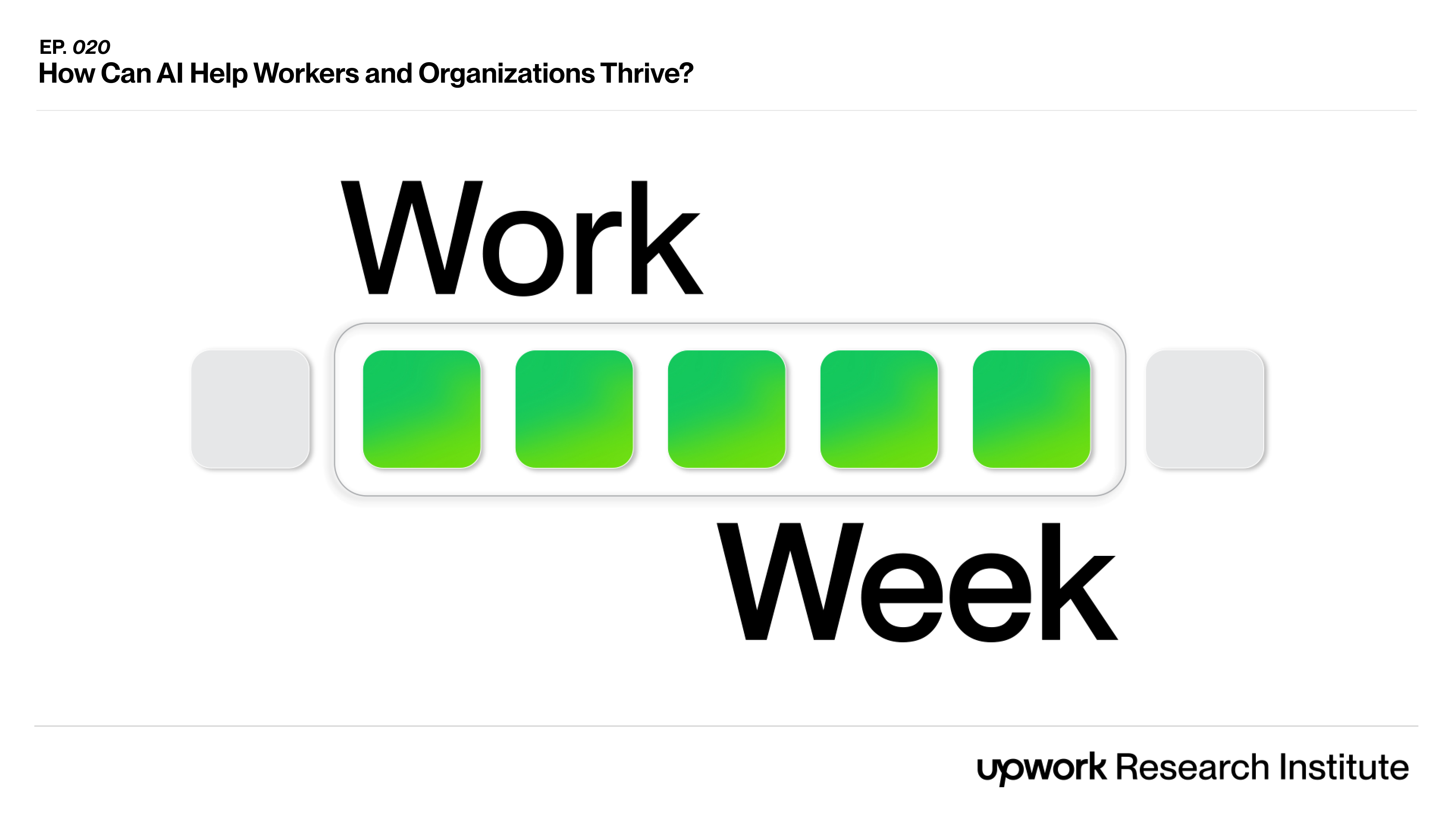
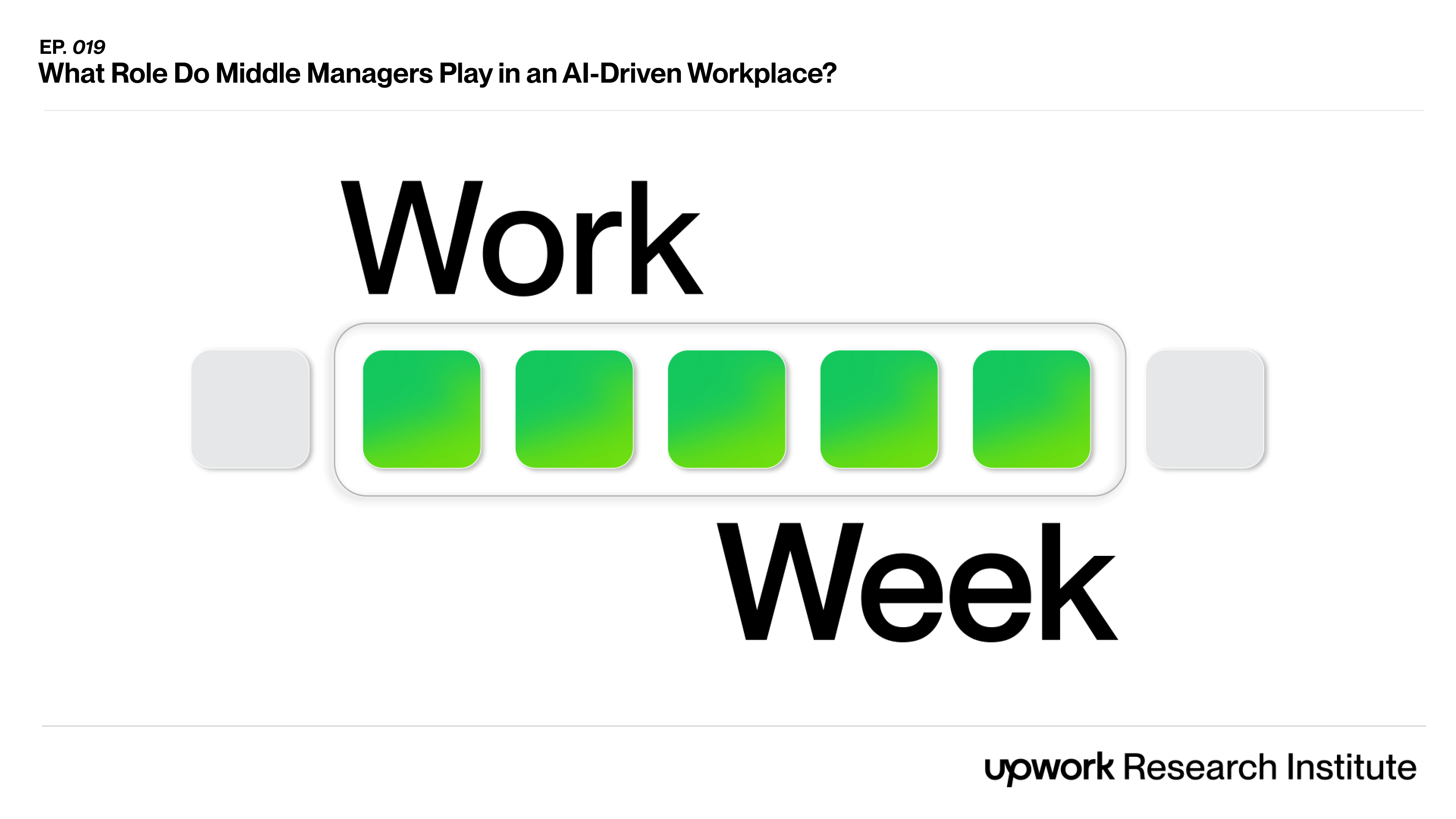
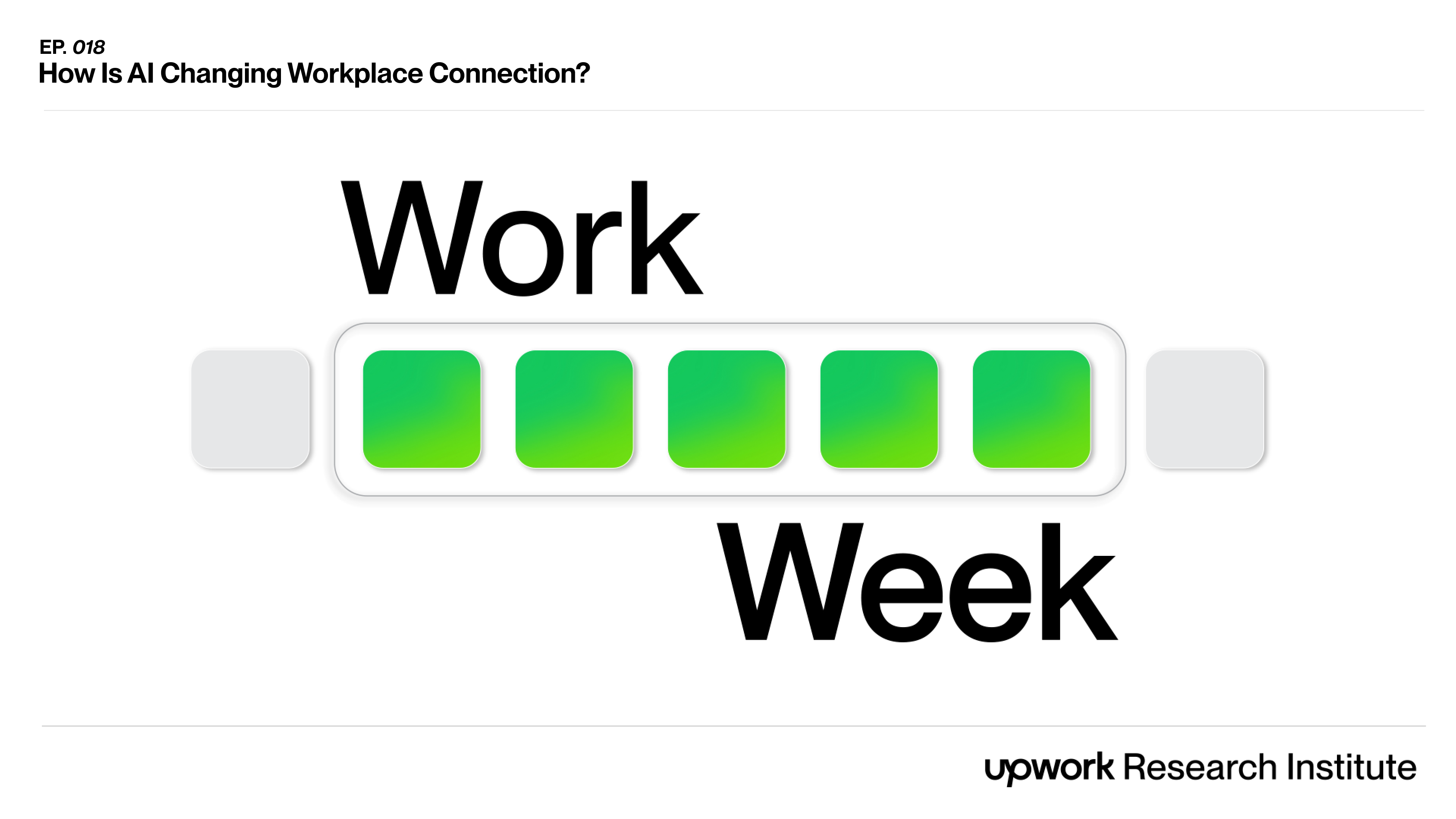

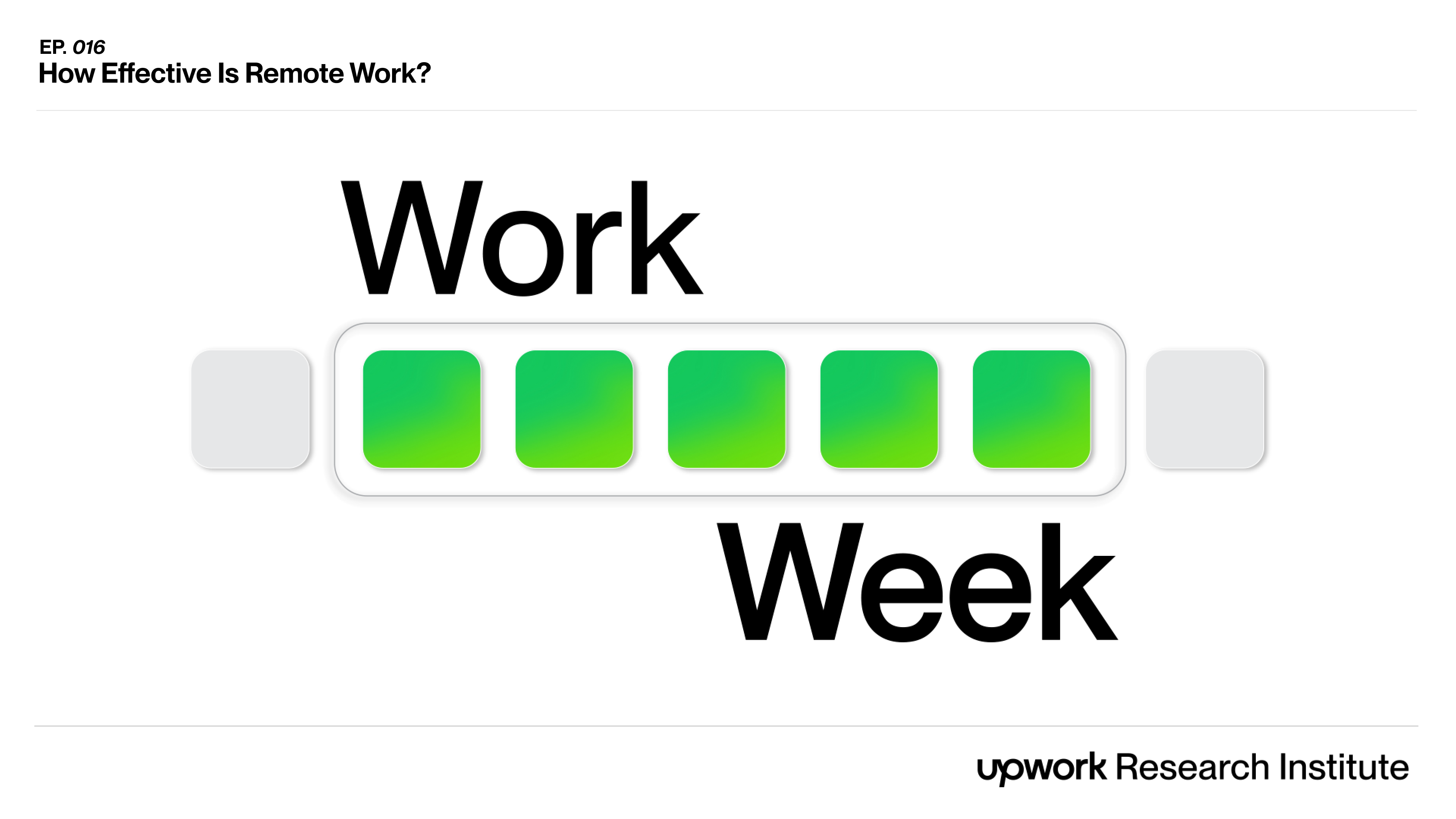
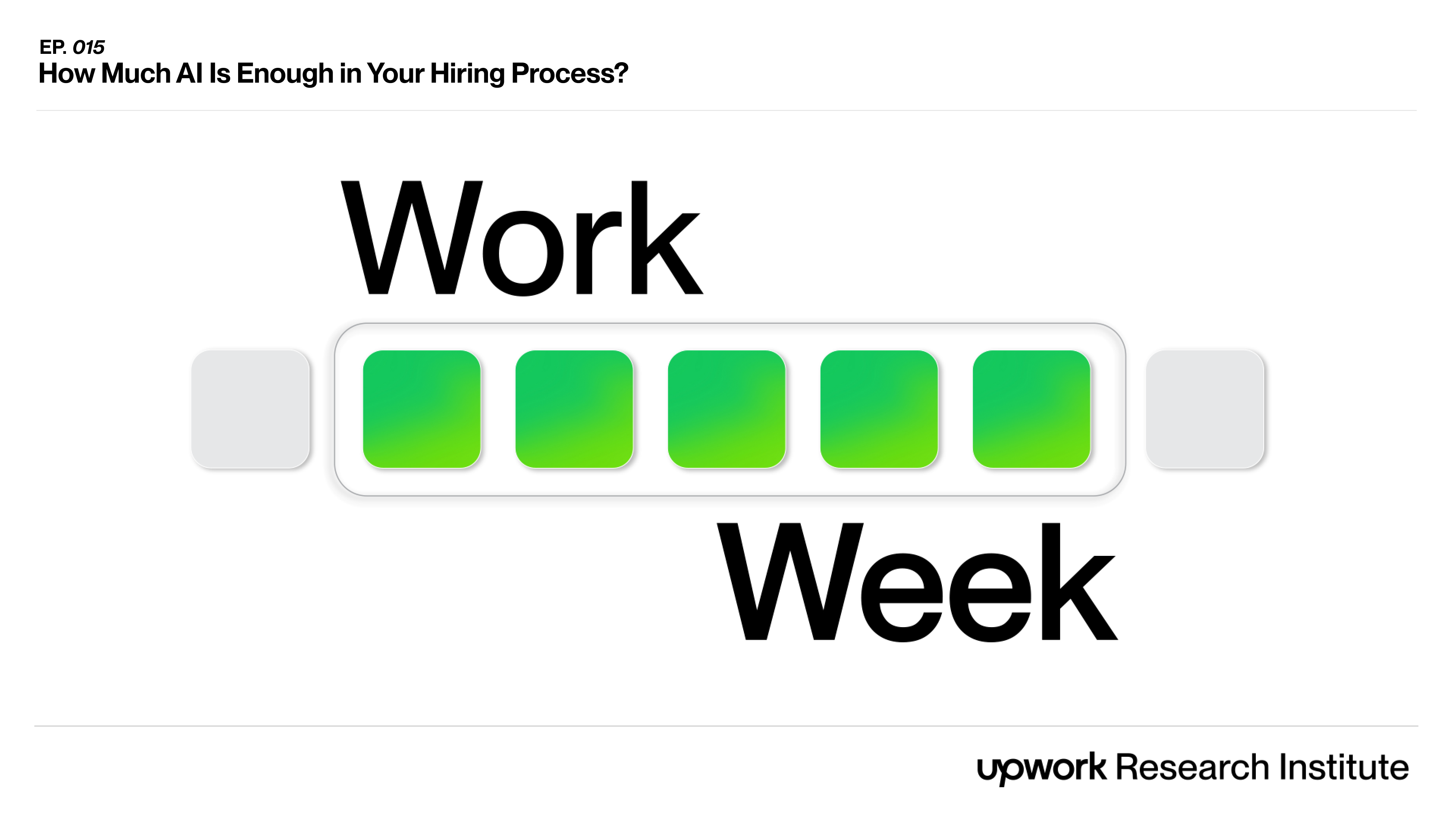

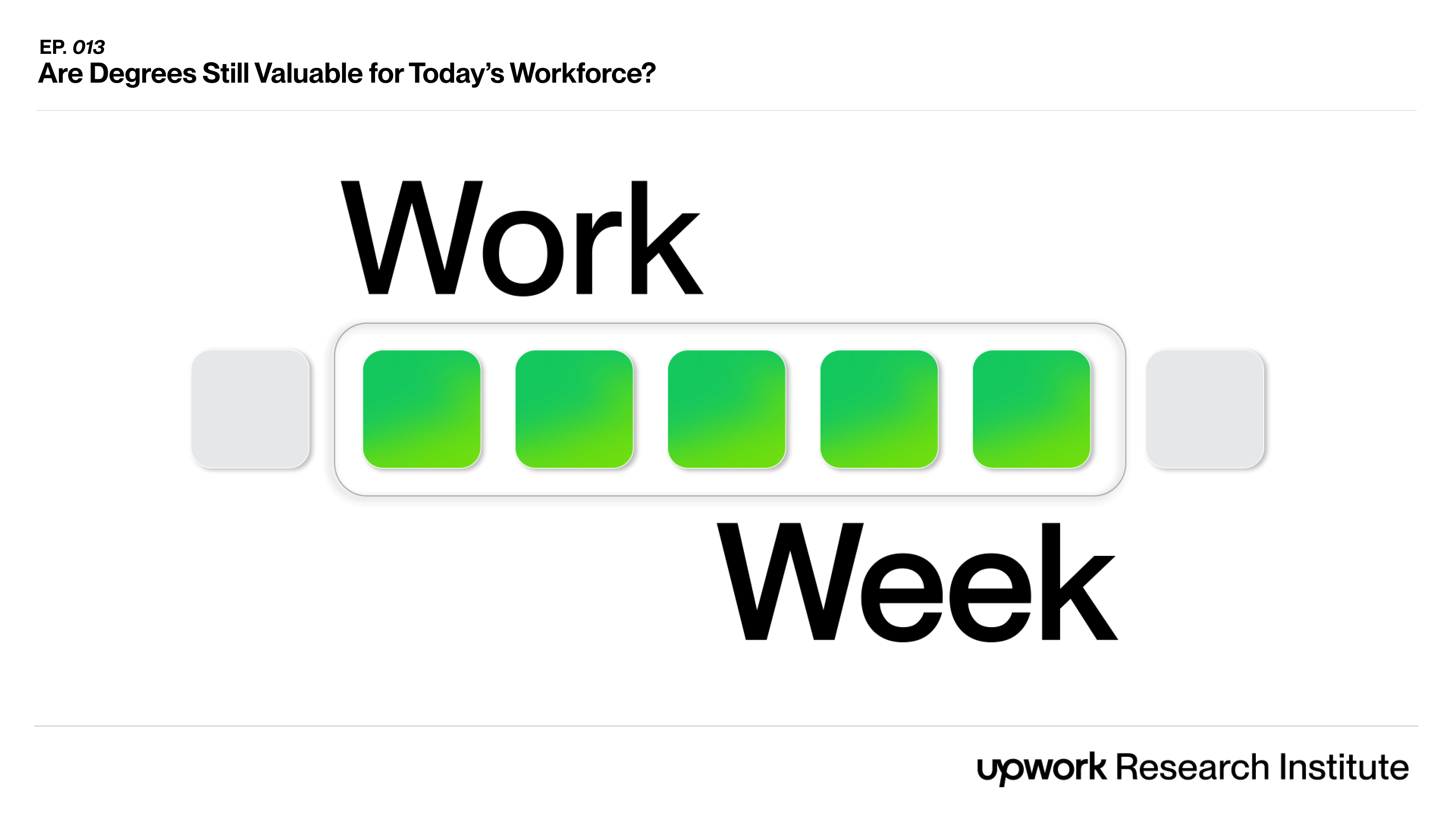
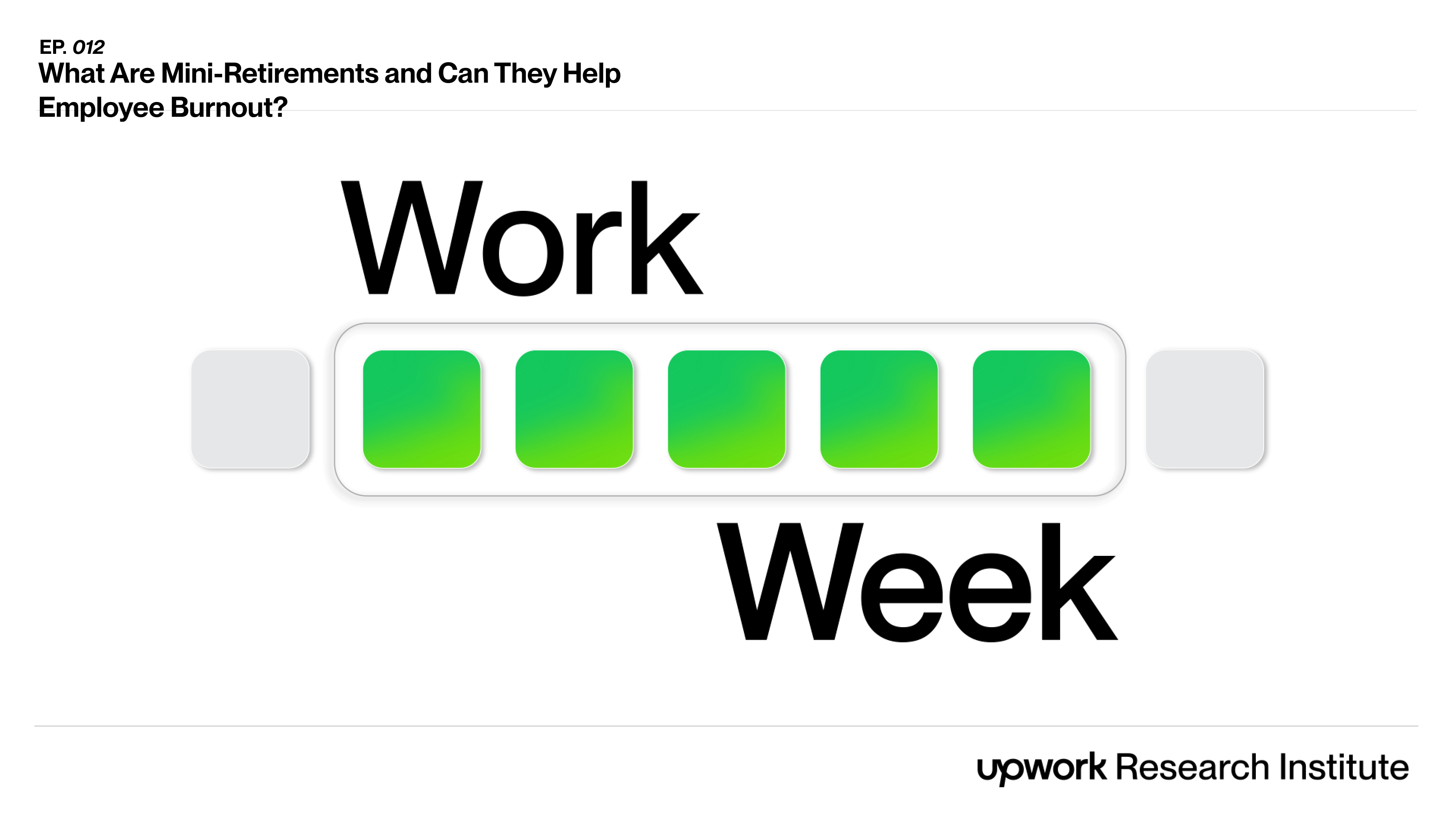
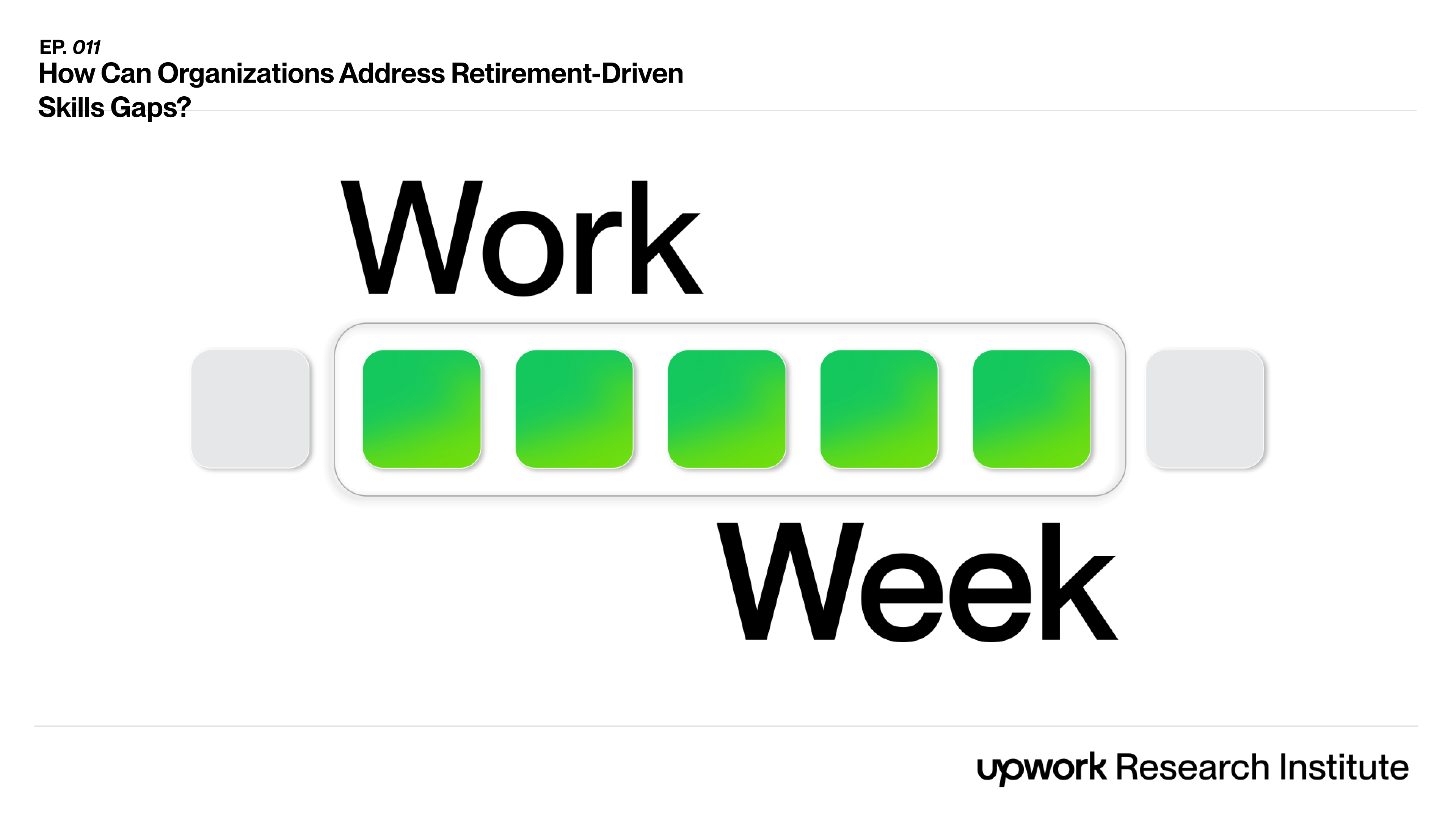
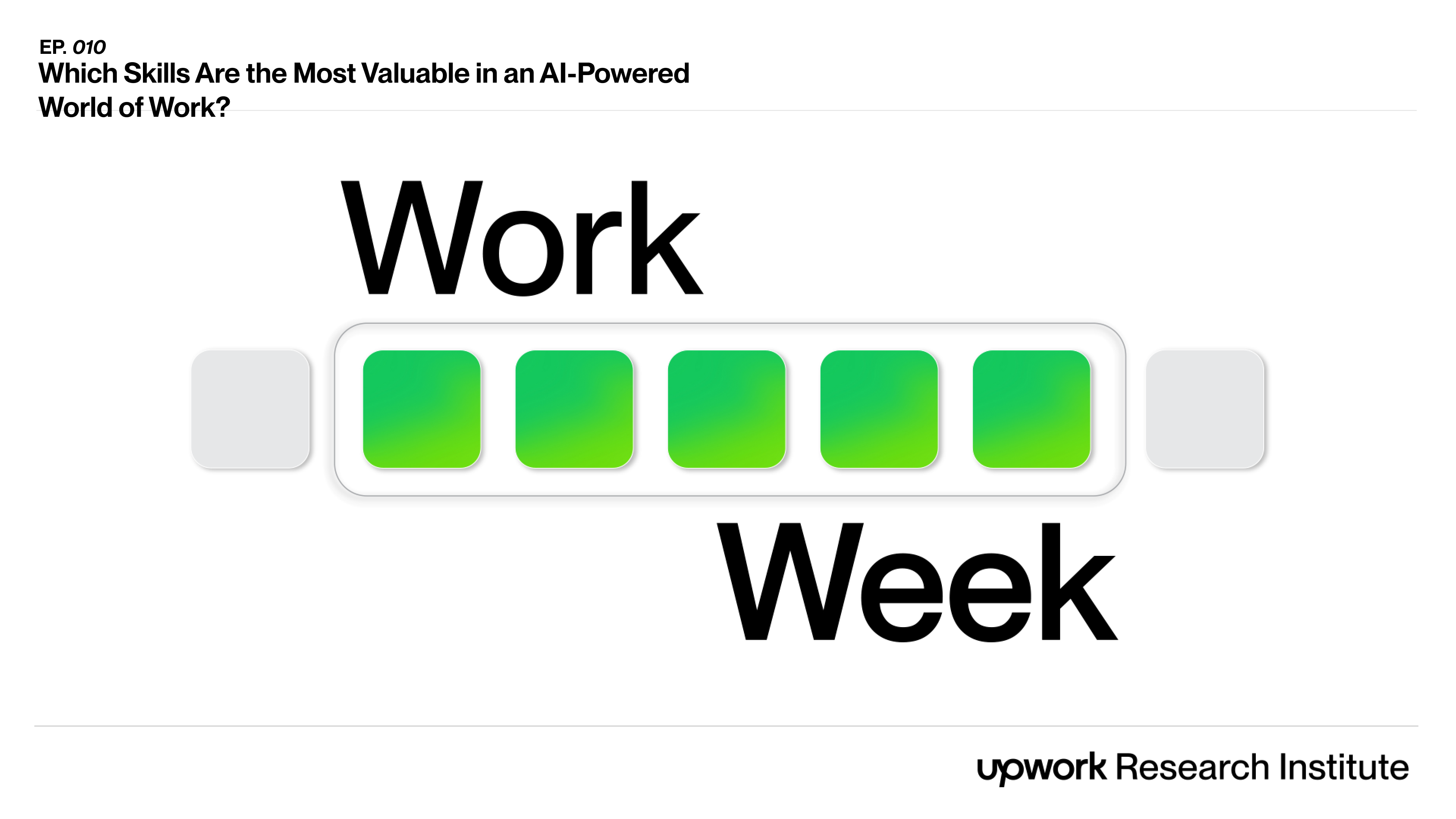
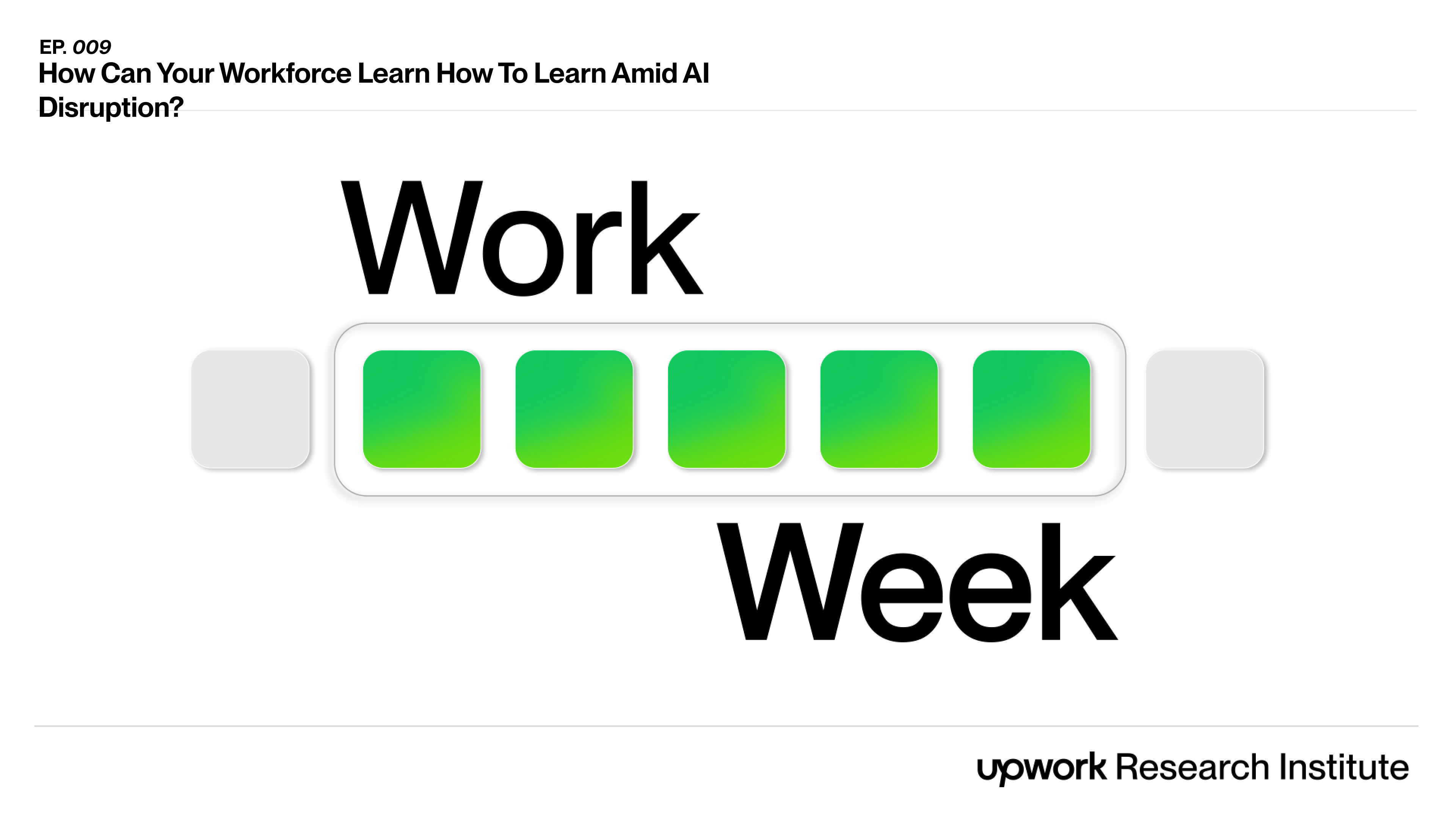
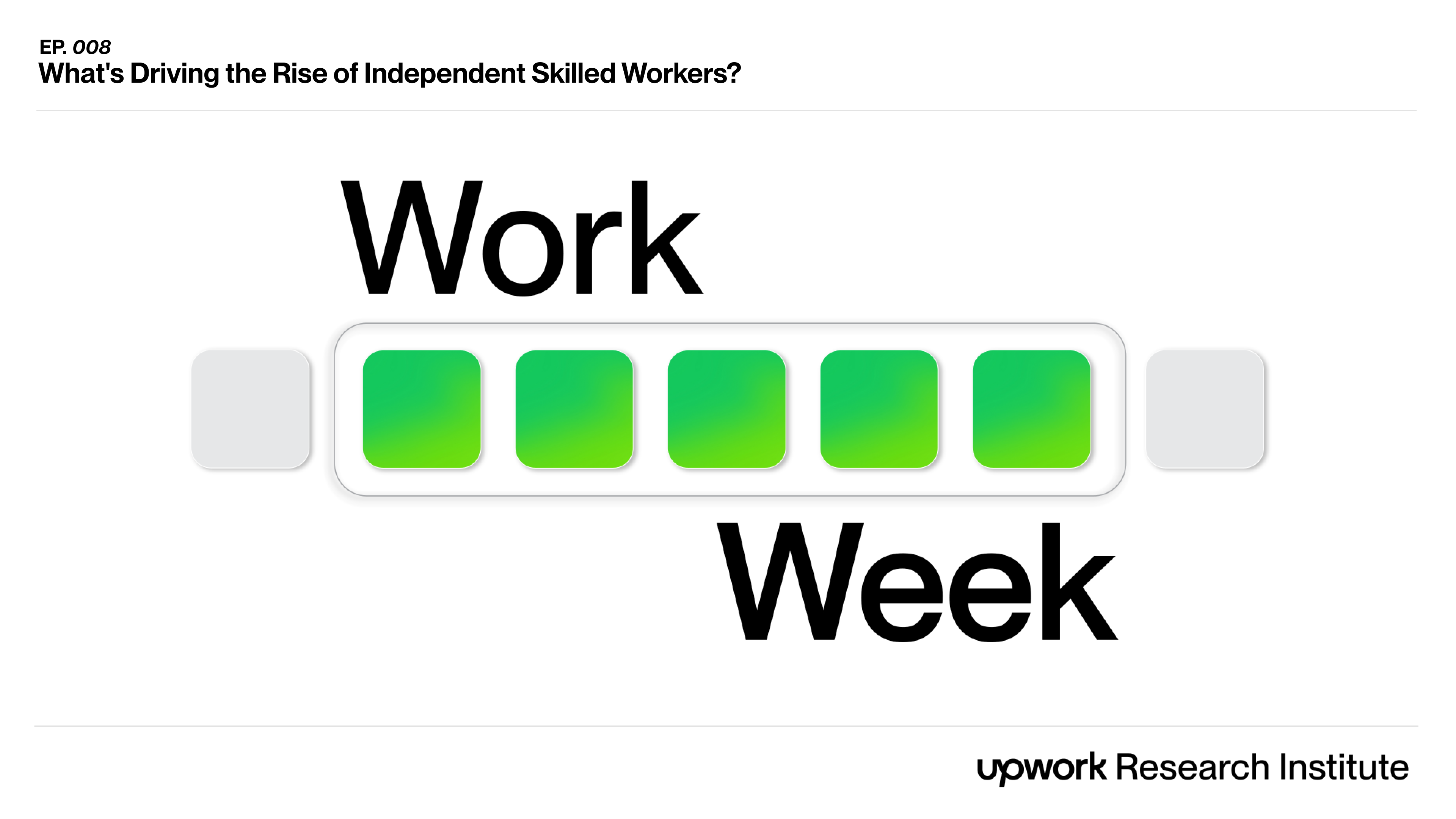
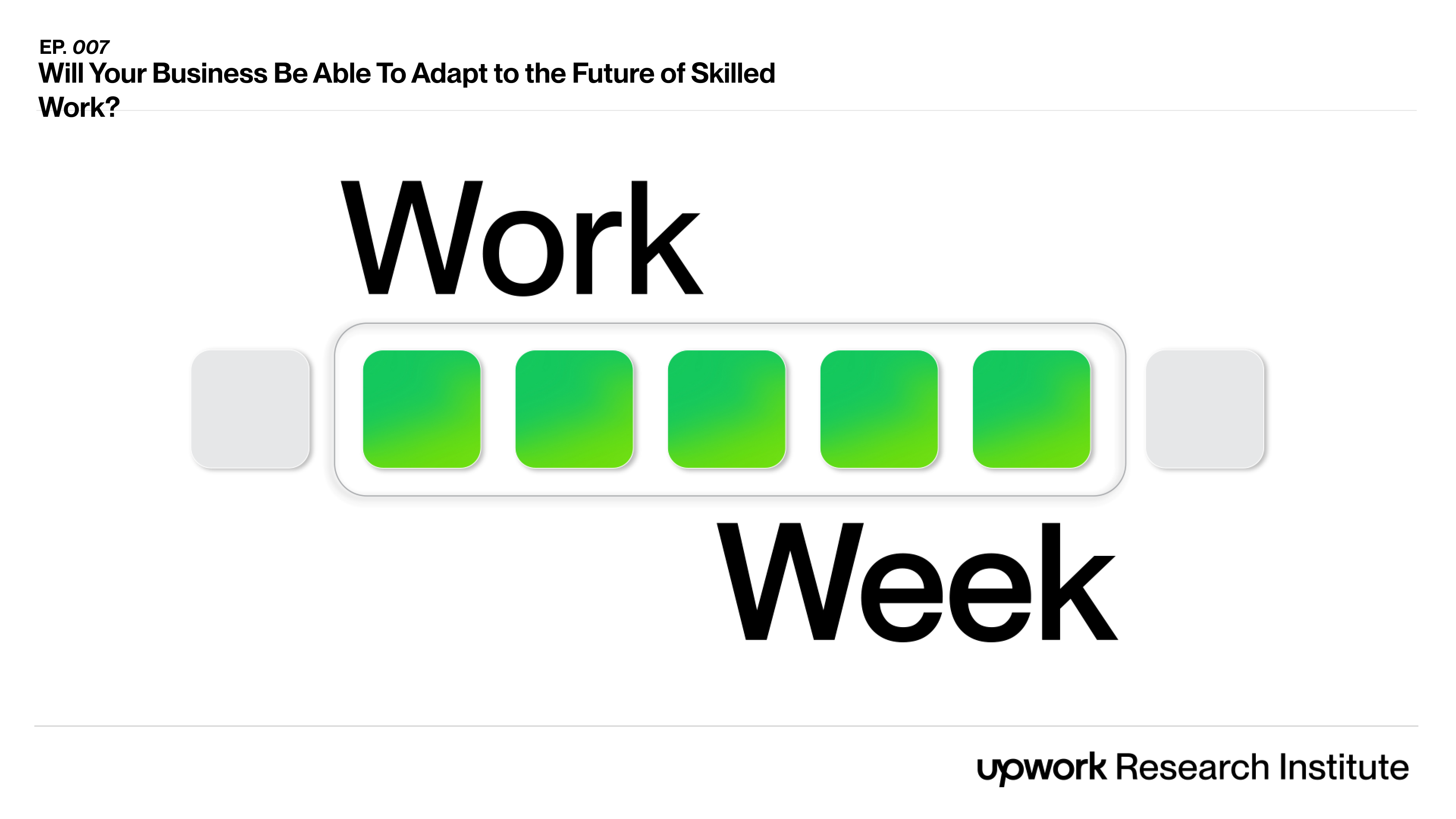
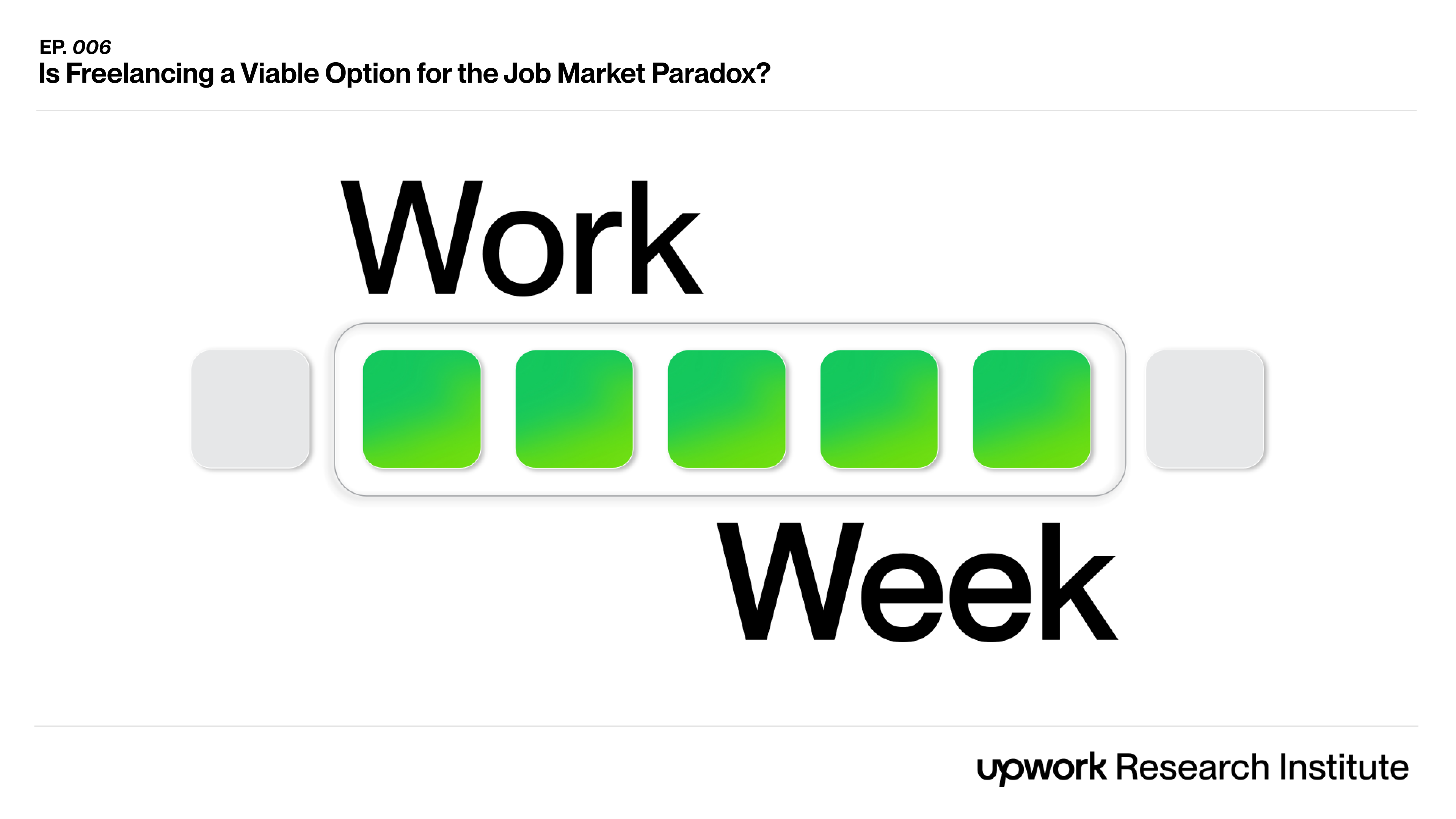
.png)
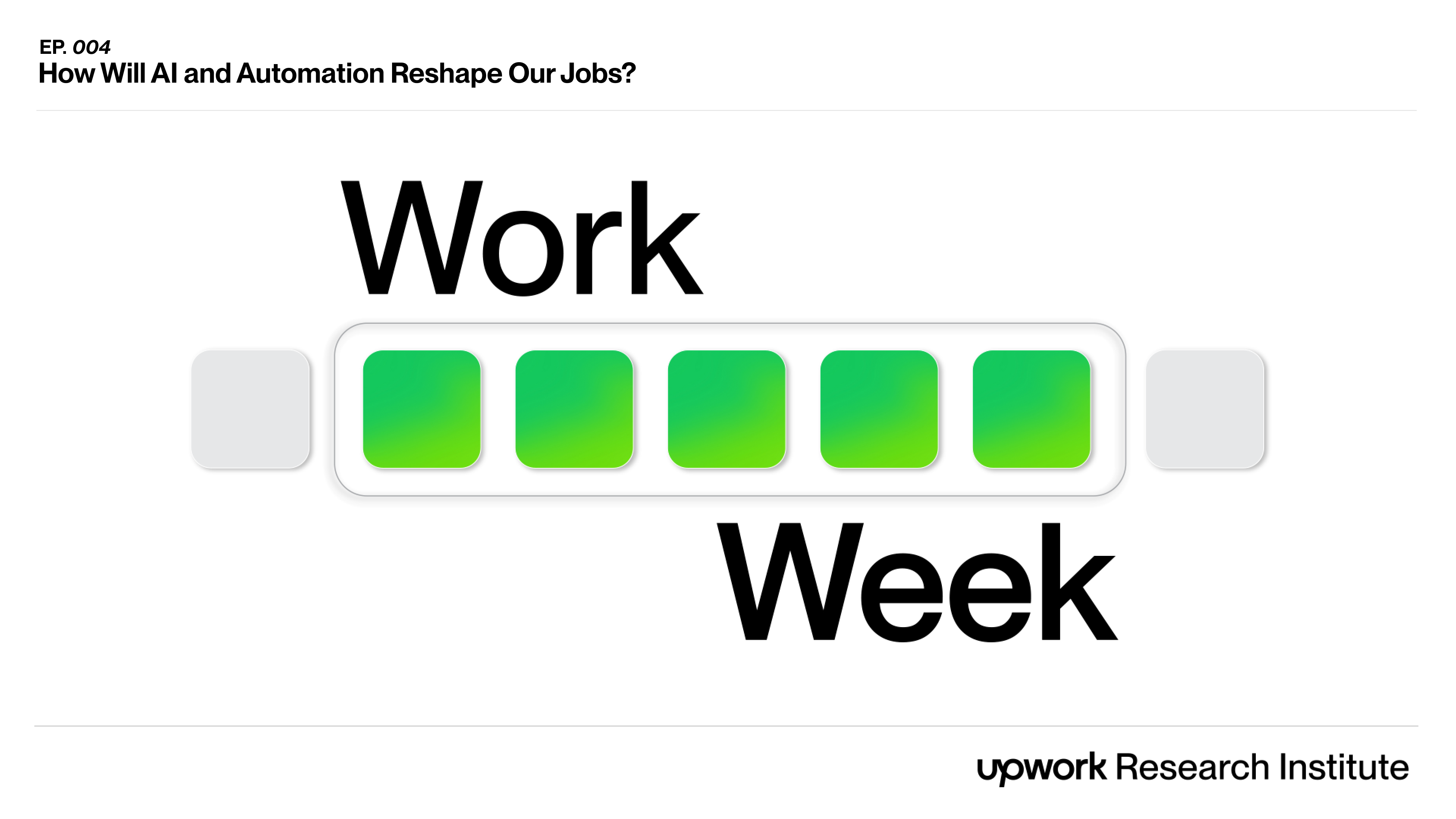

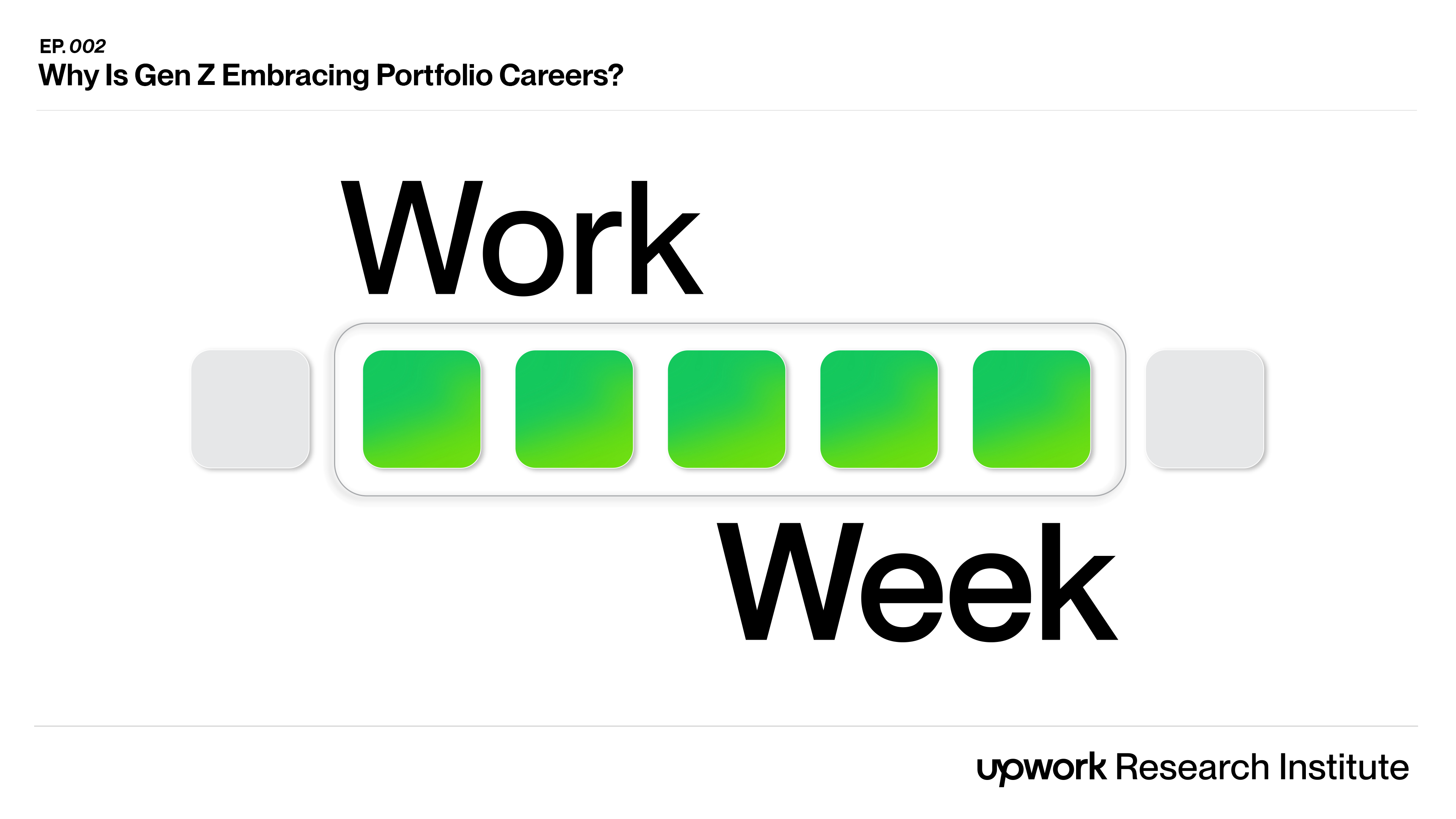
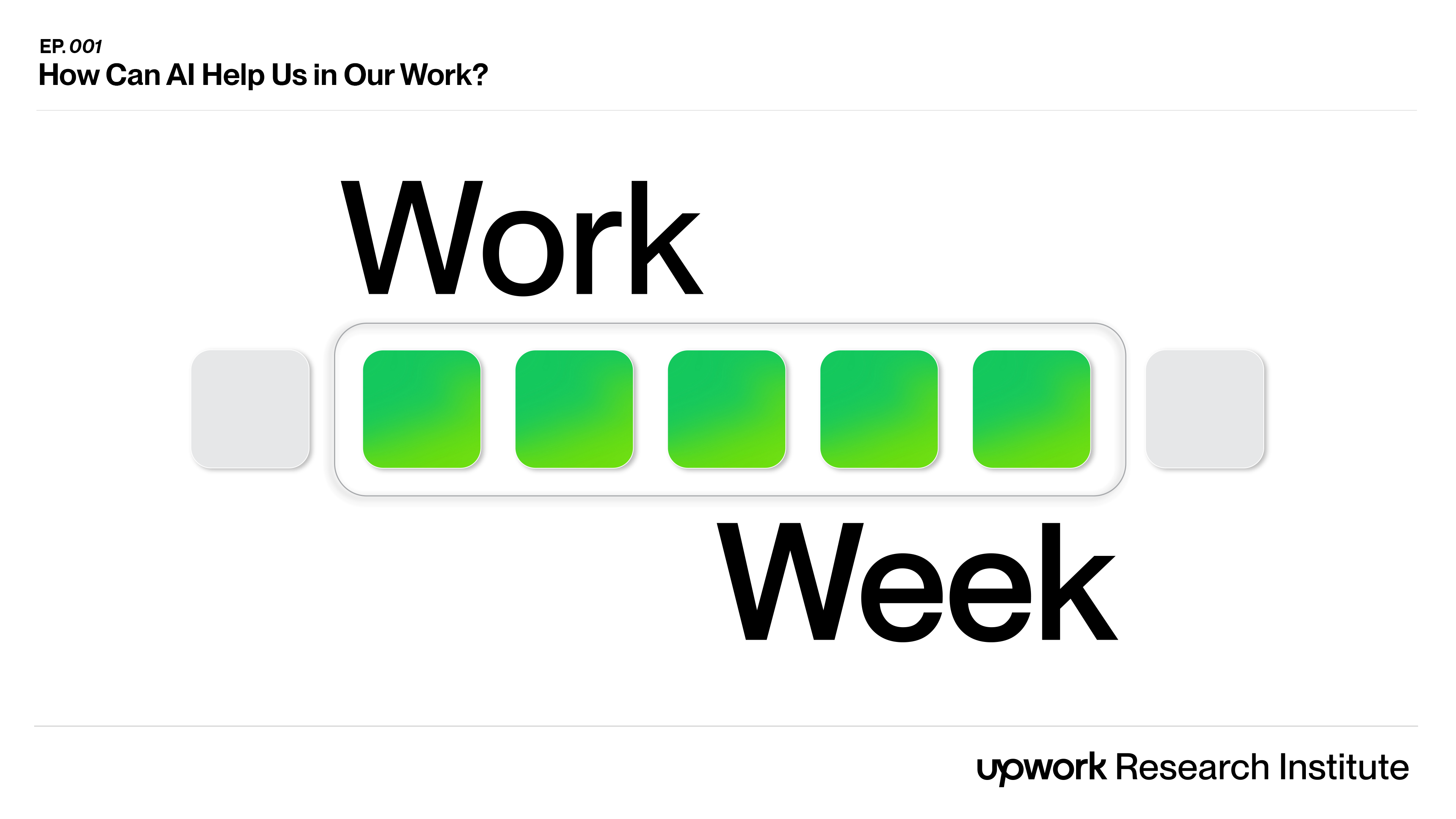
.jpg)